
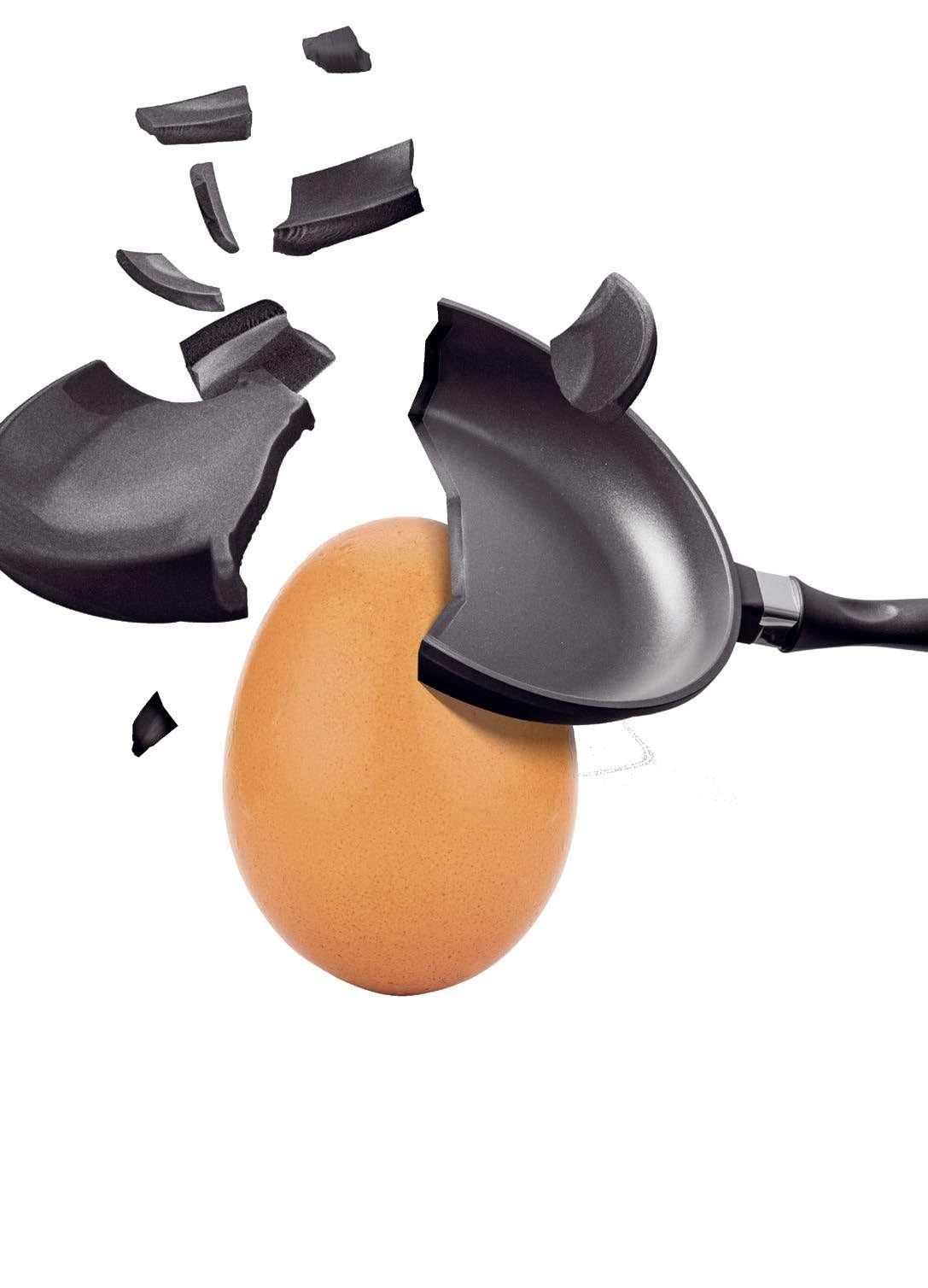
It still takes a lot to crack a LOHMANN egg –
now more than ever!



It still takes a lot to crack a LOHMANN egg –
now more than ever!
As we come to a close of 2022, we are excited to present our annual issue of Poultry News, always a good opportunity for us to look back over the year.
For me personally, it was without question a special year, the first as Managing Director of LOHMANN BREEDERS, just as it was for my colleague Jörg Heier. Clearly of course, we have chosen a challenging time for our beginning. AI remains a big challenge in terms of securing deliveries, while ongoing socio-economic conditions continue to affect all of us to different degrees. I believe we will continue to face these challenges for some time, and that these will have a significant impact mark on not only our industry. What else happened and what our goals are for the coming year can be read in this issue of Poultry News.

Despite these challenges, LOHMANN BREEDERS had an eventful year. We returned to a year with numerous events in our newly designed auditorium, including the LOHMANN SCHOOL and the LOHMANN SCHOOL Cage Free, which took place again as a face-toface event. The Technical Service team also made numerous visits to customers, which enabled us to feed our InfoLounge section with many articles about visits and events. Furthermore, there is always news on our website, such as new language versions and improvements in the individual areas. So a regular visit is worthwhile!
But Poultry News is not only meant to be a review of the past year. Of course, we also look ahead! Read about our investments, plans and what’s new in genetics. As a special bonus, there is a brand-new Toolbox article, exclusively for our loyal readership.
As you can see, we are ready for another successful year with you, our customers and partners. Maybe we will meet at our FDM in Hamburg or at VIV Asia in Bangkok in 2023?
No matter how, where and when, we look forward to seeing you and hope to soon be able to pursue our motto again to its full extent with fewer obstacles “Breeding for Success - Together!”
In this spirit, we hope you enjoy reading our Poultry News. Stay healthy!
Sincerely yours,

The market conditions for shell eggs in some western European countries have changed over the last few years significantly. Especially in...
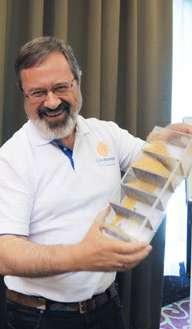
At LOHMANN, the word innovation has a special meaning. In all areas, we always try to adapt to the specific market situation and...
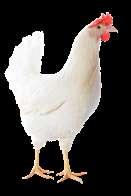
After a long time, we were finally able to hold our popular LOHMANN SCHOOL again...
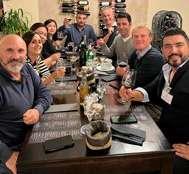

You are now looking back on your first year as Managing Director at LOHMANN BREEDERS, responsible for...

Use of fat and oil in professional feed mixtures for laying hens” - that was just one of the many, many articles written by our esteemed colleague Robert Pottgüter. But for us...
After a break due to the pandemic, the LOHMANN SCHOOL CAGE FREE is finally returning to Cuxhaven as...

The fifth month of the year, the merry month of May, stands for growth and spring, everything awakes to life. After all the Corona restrictions...

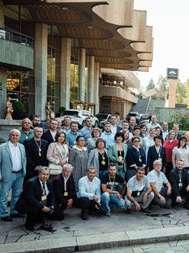
VIV Europe took place from May 31 to June 2 in Jaarbeurs-Utrecht, the trade fair complex in the heart of the Netherlands. With about 25,000 expected visitors from 136 countries and...

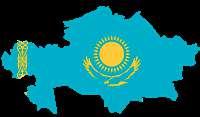
This was the theme of our popular LOHMANN SCHOOL this time held in Almaty, Kazakhstan from 12 - 16 September 2022. With a total of...
2022
At the beginning of the year, nobody knew how the year would develop in terms of events. Fortunately, the demand for LOHMANN presence events was...
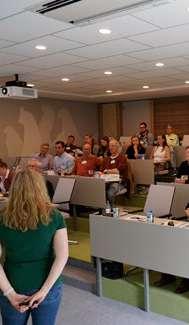
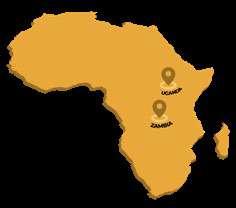
LOHMANN BREEDERS is known for the excellent customer service, i.e. after sales service. Our team is always ready to help with...
In 2019, the first Global Egg School took place in Mozambique in cooperation with IEF. After this event was so well received, we decided to continue the project. So there was a school again this year, this time in Zimbabwe.
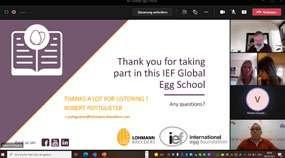
Due to the current corona situation, the training...
Since several decades Ghen Corporation of Gifu, Central Japan successfully distributes LOHMANN LSL breeders in Japan...

68On 6th and 7th April Ghen Corporation, the distributor of LOHMANN LSL breeders (called Julia in Japan), organized the annual Sakura ‘Cherryblossom’ technical meeting...
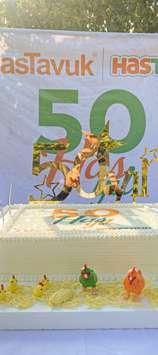

It all started in 1972 when two friends, Sedat Sırrı Sezer and İsmail Hakkı Yılmaz, founded HasTavuk for feed and table egg trading in Bursa. The company quickly grew, building up its own...
Our great partner and friend in Ecuador, Inbubandina S.A., has completed 30 years dedicated to poultry production...

When it comes to animal welfare, Switzerland is considered a pioneer. In the area of parent stock management...
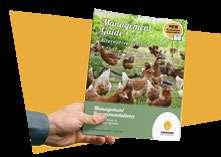
The growing market of Brazil has been one of the most important areas for LOHMANN, where we have...

For every management the right hen, for every market the right egg and from now on for every taste the right recipe!

2022
No
Housing and brooding periods are one of the most critical phases in whole life of a laying hen. This stage along with proper rearing to...
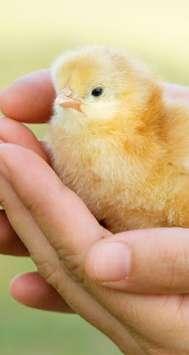
The market conditions for shell eggs in some western European countries have changed over the last few years significantly. Especially in Germany and The Netherlands the price pressure from the discounters for the cheapest possible egg make the egg packers to prefer a medium/small white egg.
The cost price to produce this egg is lower than large white eggs and little lower than a medium sized brown egg. As on the producer side, there is no extra income from large eggs (white eggs), the demand for a hen with as many as possible M eggs increased.
The regular LSL LITE hen, with a cumulative egg size of 61,5 grams at 80 weeks produced ca 35 - 40% large eggs. As there is no extra payment for large eggs, this egg size was too high for the markets in western Eurpope where white eggs are prefered in the Discounter segment.
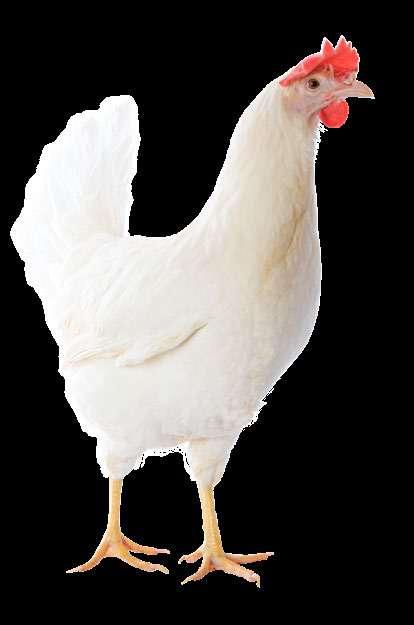
As this situation is sustaining, an adjustment in the LSL LITE was necessary.
The main focus for the new hen was put on the following criteria and circumstances.
Cage free, mainly aviary and free range
Conventional and organic
Flat egg weight curve with a reasonable number of S-eggs (below 53 gr.)
Egg size after 60 weeks of age not much over 61-62 grams
Excellent livability and good robustness, resilience
Good feather cover without beak treatment
Good feed conversion with 125-130 gr. feed per egg
With these targets, from the existing gene pool of the LSL LITE pure lines, families were identified, which matched these targets in the best way. From those families, the new variety of LSL LITE called “LSL LITE EUROPE” was created and parentstock produced for Germany and The Netherlands.
Since spring 2021 commercial chicks from this modified variety hatched and now is time to summarize the so far results from flocks now in an age of up to 65 weeks.
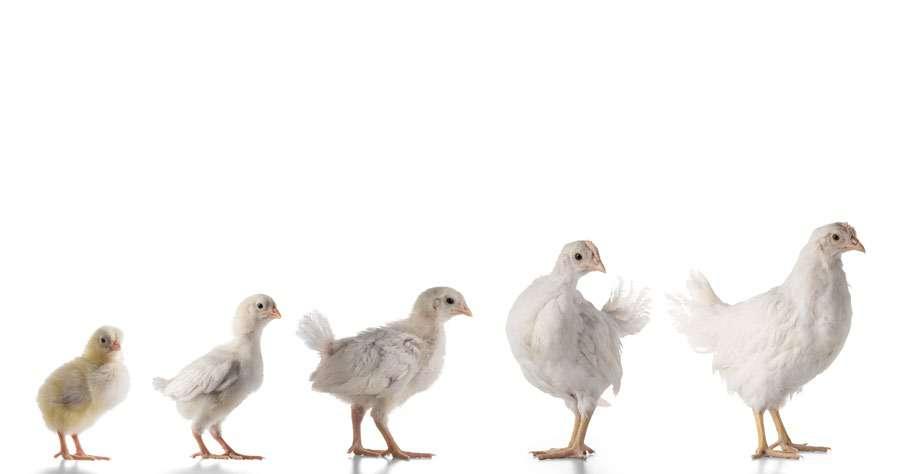
To the current stage, the targets which have been set are fully achieved. Especially the improved livability is very obvious.

In Figure 1, the comparison of mortality from the former LSL LITE version with the new LSL LITE EUROPE is very clear (data provided from Ter Heerdt, flocks from The Netherlands and Germany, more than 1 mio birds).
Figure 1. Comparison of mortality of LSL LITE EUROPE (orange line) compared to regular LSL LITE (red line), data provided by Ter Heerdt
As forecasted, the bird has obviously a lower metabolic stress from a smaller egg size and is therefore more robust and resilient against environmental factors. The mortality is reduced by more than 50 % to a level of 2 % at 69 weeks of age for the oldest flock of LSL LITE EUROPE. The lower trend is visible throughout the whole life.
To avoid any confusing message about the regular LSL LITE breed: the 4,2 % mortality at 69 weeks of age in this data set is absolutely within the breed standard for the regular LSL LITE and does not reflect at all a “poor” livability of the regular LSL LITE.
Just the new LSL LITE EUROPE is even better but can only be achieved if the smaller egg size is accepted in the market. Of course, the LSL LITE behavior of the hens is reported to be excellent calm and not at all nervous.
The “known” advantages of LSL LITE like a good body weight in rearing and a good flexibility in feed intake are with the new hen the same.
The feed intake in the lay period is still high enough to achieve a good production, but from the high correlation between egg size and feed intake, the smaller egg size makes a lower feed intake per day compared to the regular LSL LITE before. 3-4 grams lower feed intake per day is observed in most of the flocks.
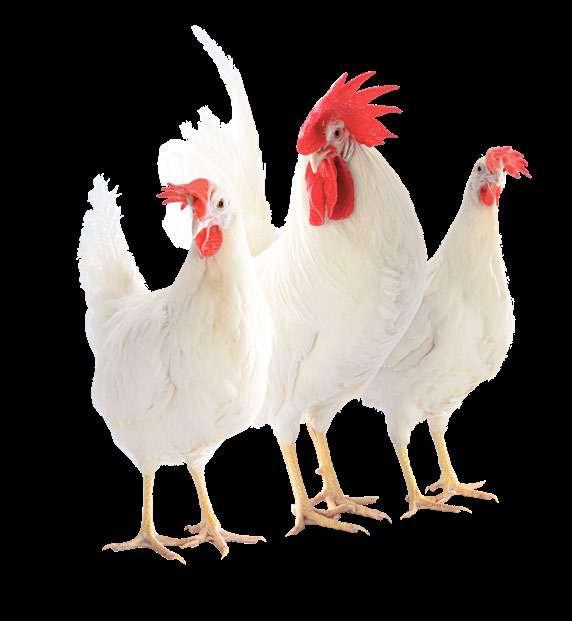
Does the percentage of small eggs
compared to the regular LSL LITE?
The lower egg size is already mentioned and explained, but how is the egg size curve with the new hen: does the percentage of small eggs increase compared to the regular LSL LITE?
The answer is given in the Figure 2: The early egg size has not changed significantly. The threshold of 53 grams is reached only a few days later and after reaching the 59 grams with 32 weeks, the egg weight curve is very flat and stays long time around 60 grams.
This is the desired egg weight curve for the maximum of M-sized eggs without too many S-eggs and too many L-eggs. The average/cumulative egg weight in the 69. week of age (age of the oldest flock) is 1,9 grams lower compared the year before from the regular LSL LITE.
69. LW Eggweight - Avg. EW 20. -69. LW Lite EU: 61.3 Lite 2020: 64.2 58.4 60.3
Egg weight (gr) LITE EU
Egg weight (gr) LITE 2020
Figure 2. Comparison of egg weight of LSL LITE EUROPE (orange line) compared to regular LSL LITE (red line), data provided by Ter Heerdt
There may be an effect of a slightly different feed formulation in the more actual data of the LSL LITE EUROPE flocks which also have contributed to this lower egg size. Nevertheless, the flatter curve is obvious and very much desired by the packing stations.
If you look for the breed standard of “LSL LITE EUROPE” you will not find this as a new variety name on our homepage.
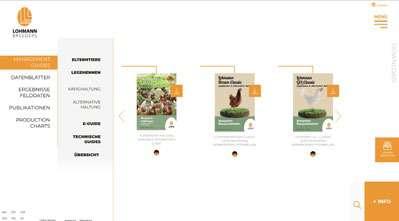
As the LSL LITE EUROPE is only used in Germany and The Netherlands, the breed standard is visible in the “Management Guide Alternative Housing” in German language.
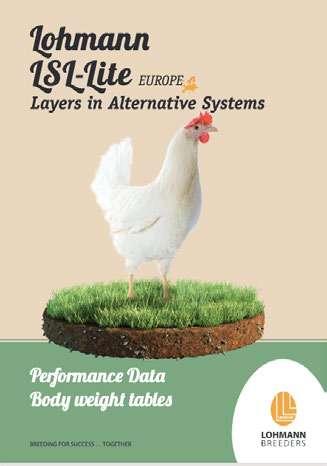
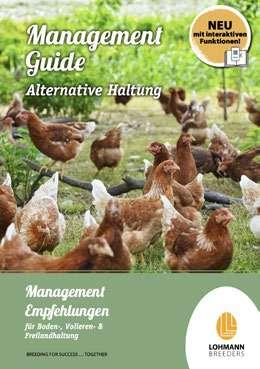
With scanning the QR code in this text, you can go directly to this breed standard.
View link
LSL Lite EUROPE: A new star is born
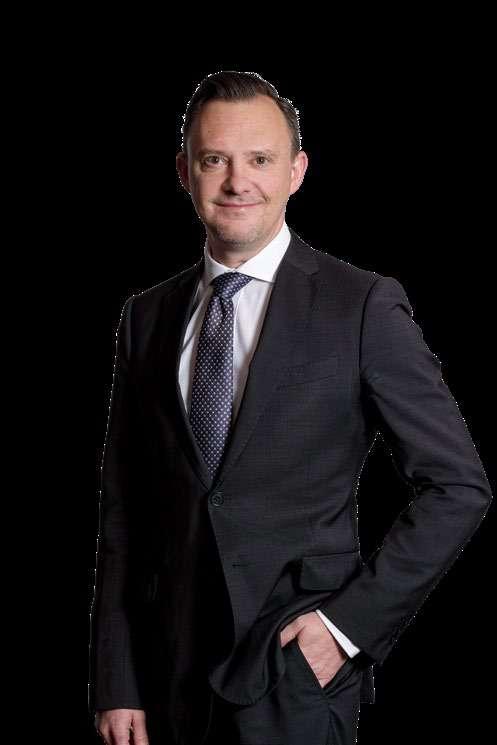
You are now looking back on your first year as Managing Director at LOHMANN BREEDERS, responsible for Sales, Technical Service and Marketing. By now you have certainly been able to get a good overview. So here are a few short questions to give our customers a brief update as well.
You have your background from another industry. What do you find particularly challenging about our business?
Although I have always been in the egg industry, dealing with live animals is certainly different from the world of machines.
Planning around delicate live chicks is truly challenging while also navigating the ongoing AI outbreaks and securing deliveries as planned well in advance.
Is there an event that has had a particular influence on you or that you have particularly good memories of?
I have certainly enjoyed participating in the LOHMANN SCHOOLS and getting to know our partners and customers, as well of course all my new talented colleagues.
The second half of this year has also allowed me to resume travelling and visiting our customers and partners.
LOHMANN is a German company with a very international structure. What do you see as the biggest advantage (for customers)?
LOHMANN for sure has a strong German heritage and culture in its DNA. But at the same time, I really see LOHMANN as a global company, with businesses throughout the world.
In addition, our customers and partners all across the globe continue also to play a role in defining our DNA, making LOHMANN a truly international entity.
The topic of sustainability is becoming more and more important. What is LOHMANN’s position on this topic and what measures have already been implemented in this direction in your area?
Our techincal service really plays a large part in our sustainability program. The welfare of the animals is close to our hearts. After all, only healthy animals that are kept comfortably and fed properly can reach their full potential.
Our experts in the global technical service team are always at the disposal of our customers, regardless of the urgency of their concerns. From veterinarians to flock management specialists to nutrition experts, they spend half of the year travelling to support our customers, to share their knowledge and thus to ensure the welfare of our animals.
With our production facilities spread aroung the world, we guarantee short transport routes and thus help to reduce the CO2 emissions. A plus for the environment, but also a very special advantage for our day-old chicks.
We avoid long hours in the chick boxes, reduce the risk of unnecessary stress for the animals and a better liveability rate.
You have not really chosen the easiest time for your new position as Managing Director. What was and/or is one of the biggest challenges for you and what do you think is the biggest challenge for the poultry industry in the coming years?
All remains a big challenge in terms of securing deliveries, while the ongoing socio-economic situation continues to affect all of us to different degrees.
I believe we will continue to face these challenges for some time, and that these will have a significant mark on not only our industry.
Marketing is always a dynamic part of the business, needing to all the time digest information and intelligence from across the business, so we ensure getting the right and honest message across.
I have been fortunate to join the company just as a new image and company name had been introduced. It is my vision to build on this corporate identity and further strengthen the awareness of LOHMANN in our industry.
We have a very strong technical sales set up as well as sales people with impressive backgrounds within animal science to support our partners across the world.
We need to continue to build on this to ensure we are delivering a superior service to our partners.
Have you any concrete innovative plans for the individual areas of sales, technical service and marketing that are of interest to our customers?
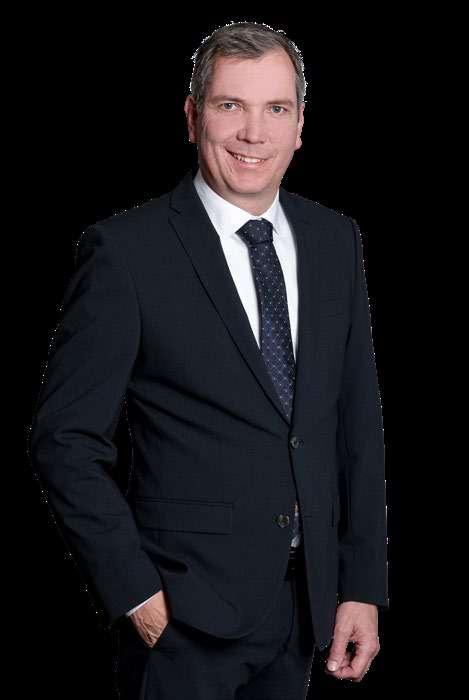
You are now looking back on your first year as Managing Director at LOHMANN BREEDERS. The company itself has been well known to you for years, only the position as Managing Director is new.
After one year of practical experience, where do you now see the advantage of a dual management with separate divisions?
LOHMANN BREEDERS is an internationally active breeding company with production facilities on 5 continents, permanent investments and expansions in the area of production, and with a special focus on work in the area of genetics and the respective requirements of the market.
The dual management enables us as a team to lead the individual areas of the company in a targeted manner with the particular expertise and to develop them further together with the respective colleagues. Numerous goal-oriented discussions and synergies arise as a management team with different perspectives and experiences.
HeierIs there an event this year that has had a particular impact on you or that you remember particularly well?
Besides some events in my field, like the first GP day-old-chicks placement in our brand-new farm in China, a very successful exhibition in Utrecht after a long break due to Corona as well as coming back to more travel activities and therefore the possibility to meet the own colleagues in the different locations worldwide, an event outside the poultry world has stayed in my memory, which happened during our LOHMANN SCHOOL in Cuxhaven.
While our team was in the training room with the participants, a child suffered an allergic shock right in front of our office building, collapsed and stopped breathing. My colleagues immediately rushed to help and took life support measures that stabilized the child until the emergency doctor arrived.
It was a very emotional situation for me and my colleagues who saved the child as a team. Only later we all realized what we had achieved together. I remember this extraordinary team spirit very well.
LOHMANN is a German company, but the production area in particular is spread across many different locations worldwide. Where do you see the greatest advantage for your customers?
The decentralization of production was and is exactly the right corporate decision and orientation. It enables us as a company to secure production. This has been particularly evident in the past 2-3 years. Despite many unforeseeable events, such as the pandemic, we have managed to supply our customers, only with a few exceptions. Certainly, there have been some changes in delivery dates due to the situation, in agreement with the respective customer. At this point, we would like to thank our customers for their cooperation.
The current avian influenza situation in numerous countries around the world continues to present us with major challenges on a daily basis, in which decentralised production is an essential component of delivery security.
The topic of sustainability is becoming more and more important. What is LOHMANN’s position on this topic and what measures have already been implemented in this direction in your area?
As mentioned before, we have decentralized production in recent years, with the positive effect of shorter transport routes, proximity to our customers and, in some areas, shorter transport routes for raw materials for feed procurement.
In addition, we keep our animals in state-of-the-art houses and facilities with optimal supply systems such as drinking and feeding systems as well as manure drying, storage and transport.
Optimized ventilation and heating systems are also part of our standard and are constantly being further developed. A current focus is on alternative energy generation, such as the use of solar systems.
Our signature is our Technical Service with training of our customers and our own employees, whereby social responsibility is of utmost importance towards people, animals and the environment.
Last but not least, for decades we have made it our task to produce one of the most high-protein and versatile foodstuffs - the egg - globally under current conditions through breeding and breeding progress. Our entire LOHMANN team works on this every day!
You have chosen a hard time for your new position as managing director. What was and/ or is one of the biggest challenges for you?
Certainly, the last few years have been an extraordinary time for all of us with many challenges - my big challenge? The team, our animals and last but not least our customers, everything is an interacting process.
Additionally, the way of communication has changed significantly and has become digital. Personally, I am very positive about this, and it is a must for companies not only to follow this trend, but to help create it.
However, personal face-to-face exchange is very important at all levels and that’s the only way interaction works. The challenge was and is to bring this into balance.
Of course, I don’t want to forget the current global AI situation and the inflation rate and price increases, which is a big challenge for me but for everyone in the industry and across industries.
Especially in the area of IT, which falls under your responsibility, there are constant innovations. Where is this technical journey taking us/our customers?
The development, especially in the IT sector, is rapid. It is to be expected that the process of moving data and systems to the cloud will continue. In parallel, new technologies are already finding their way into the IT departments of companies. Artificial intelligence, blockchain and Web 3.0 are the current keywords.
As a result, company processes are being further digitalized, networked and automated. Many processes are already “datadriven”.
Thank you for the interview and we wish you much success for the future!
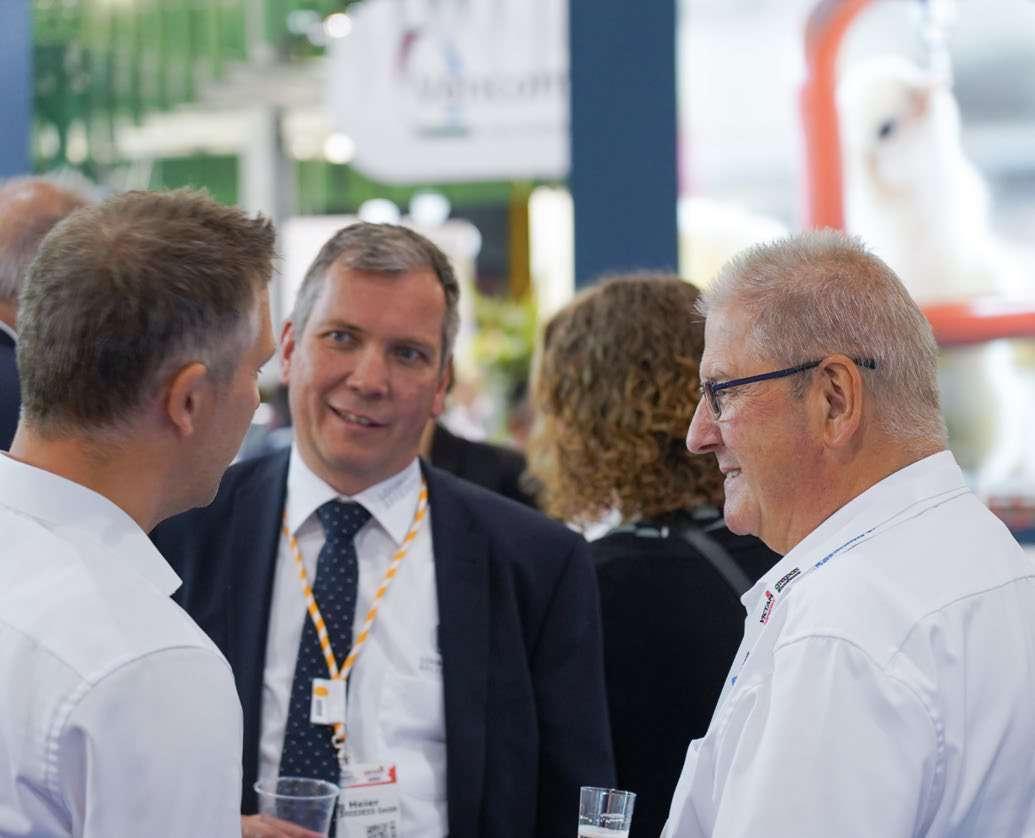

At LOHMANN, the word innovation has a special meaning. In all areas, we always try to adapt to the specific market situation and to all external influences with innovative ideas. In the area of sales and technical service, this requires a very high level of flexibility, because here we always strive to meet the wishes of our customers and to react to all problems in an immediate manner.
For the production area, innovation means above all investing in new production facilities. We invest in different projects at various locations. These are long-term projects with the aim of constantly bringing the individual production sites up to date and, above all, to constantly improve chick quality and the quality of our deliveries and to optimize the production processes. Of the numerous projects, we focus here on two of our locations: Spain and Canada.
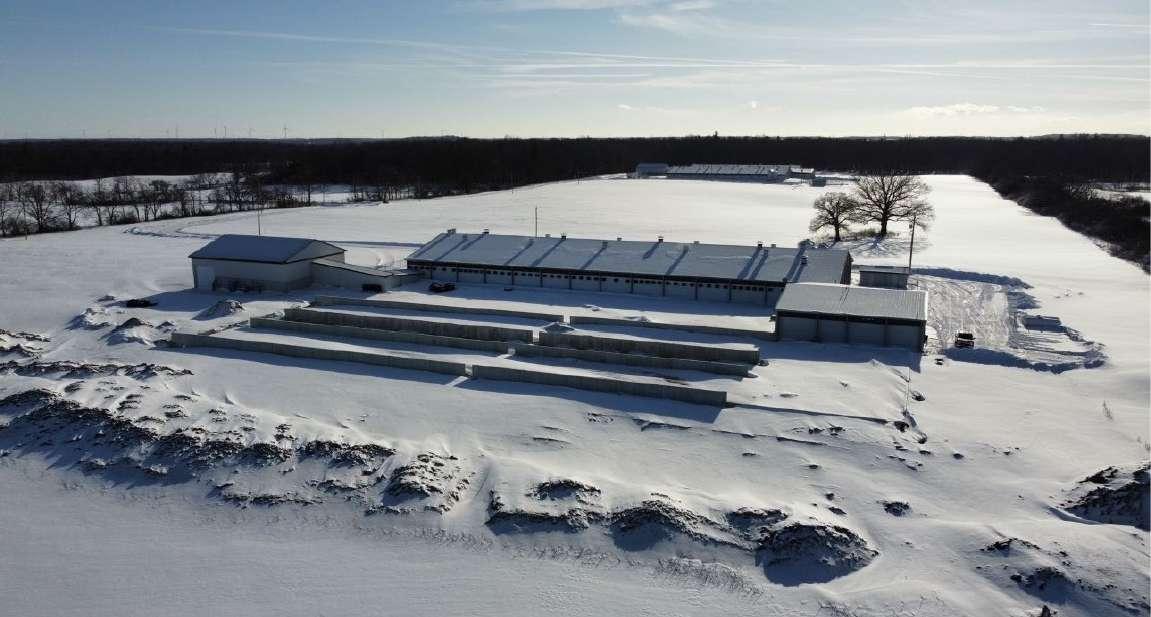

The project started about 1 year ago and went through all the Canadian seasons including lots of snow this past winter.
The steel construction was erected during spring and the installation of the insulated panels followed shortly after.
Construction finished late this fall.
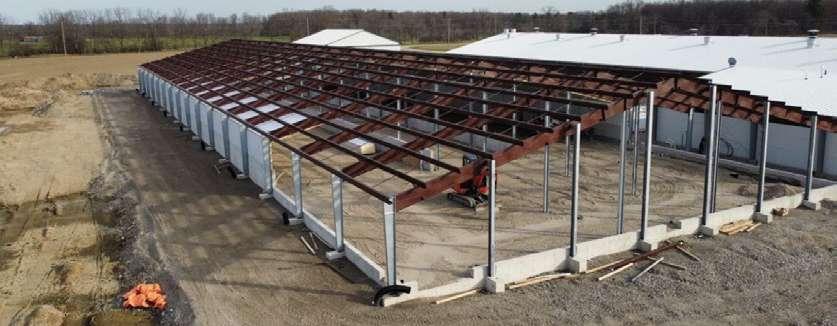
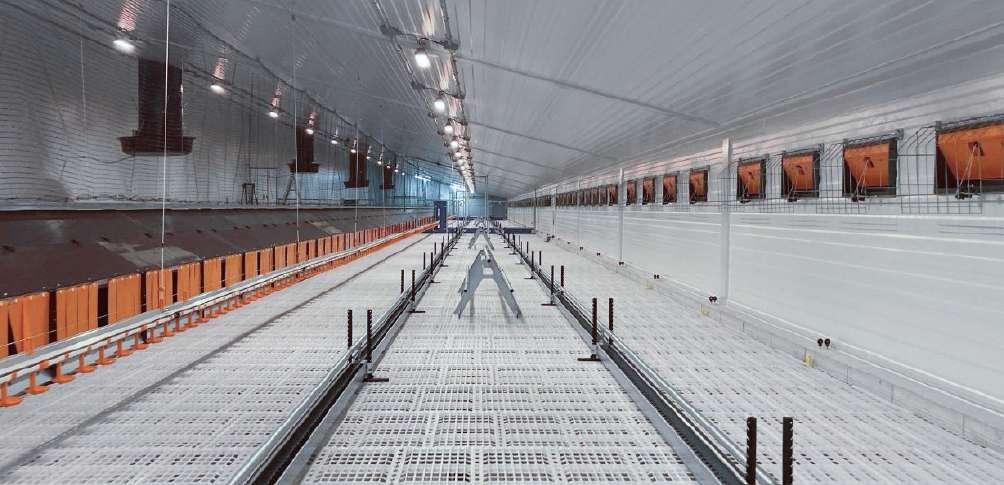

 The barn consists of 2 full slat compartments and 1 group cage section with Big Dutchman equipment.
Egg gathering for slat sides.
The barn consists of 2 full slat compartments and 1 group cage section with Big Dutchman equipment.
Egg gathering for slat sides.
Overall, it was a challenging project due to delayed delivery of equipment from Europe and general delays during the construction. But finally and at long last, we were able to achieve our goal of creating new capacity and thus guaranteeing the increased utilization of the hatchery and additional delivery security for customers.

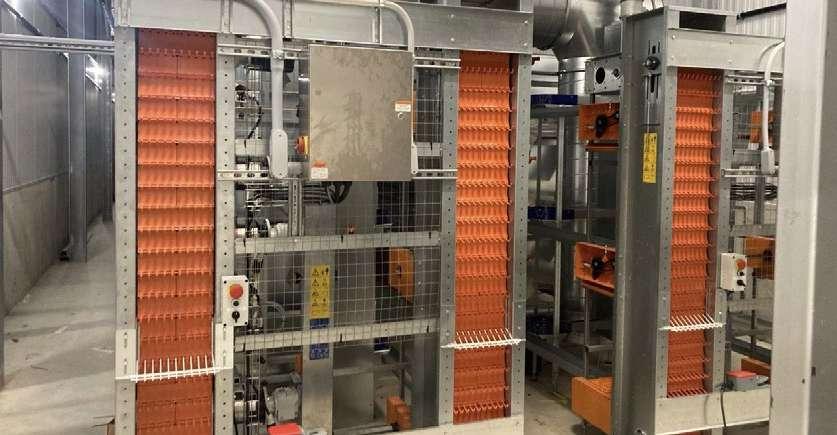 Egg gathering with elevators for the group cages.
Ventilation controllers from a local supplier that are made in Canada are used in this new barn.
Egg gathering with elevators for the group cages.
Ventilation controllers from a local supplier that are made in Canada are used in this new barn.
After an exciting construction phase, we can finally look forward to the completion of our new hatchery for grandparents and pure line in Spain in February 2023. These new production capacities will enable us to guarantee our deliveries worldwide and to react flexibly to customer and market requirements.
To take a big step towards sustainability, a photovoltaic system has been installed on the entire roof of the hatchery.
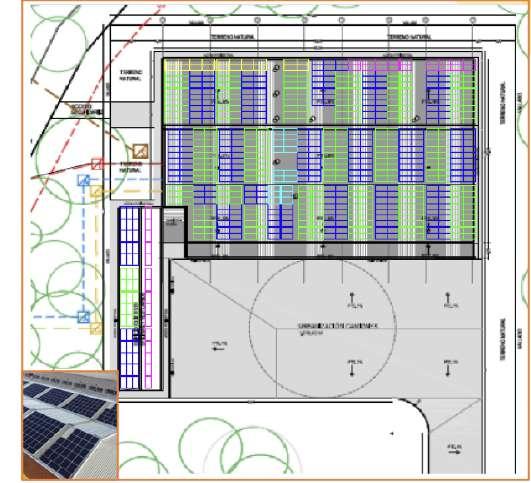
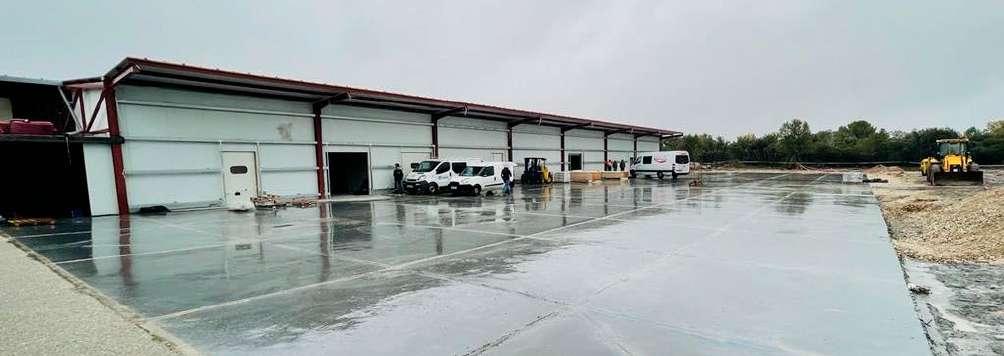
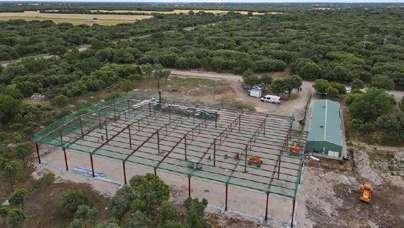
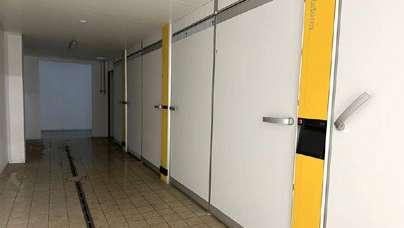
“Use of fat and oil in professional feed mixtures for laying hens” - that was just one of the many, many articles written by our esteemed colleague Robert Pottgüter. But for us, the LOHMANN BREEDERS Team, it was also his last, as we say goodbye to Robert in his well-deserved retirement.
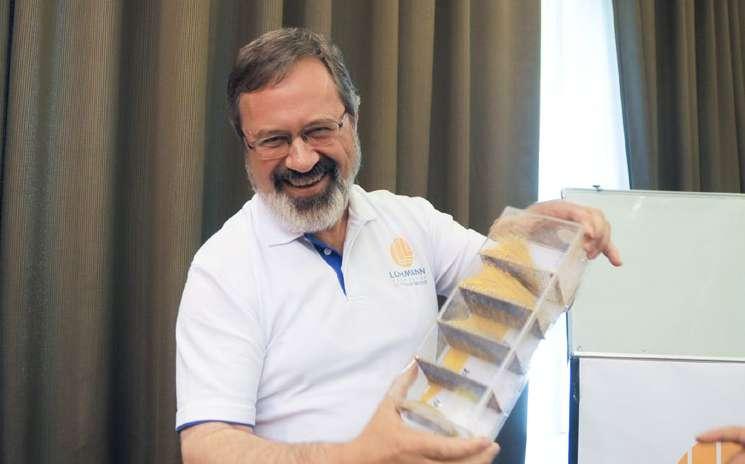
But we also want to use the publication of the latest Toolbox article to give you, as our customers and business partners, another little look back at so many years full of feed and feeding.
It all started some time ago when Robert studied agricultural sciences in Göttingen and graduated as an agricultural engineer in 1981. From 01.02.82 until he joined LOHMANN, he worked in the scientific department of deuka, Deutsche Tiernährung GmbH & Co KG, where he was responsible for recipes, cost calculation, product management, training measures, QM and the induction of new employees.
On 01.04.2006 he finally joined us, at that time still LOHMANN TIERZUCHT. His employment contract states:
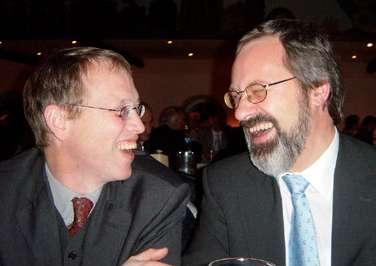
“Mr. Pottgüter will be assigned to the after-sales service area in technical service and will be responsible for supporting the sales team as well as key customers. In addition, Mr. Pottgüter is responsible for recipe formulation in the feed mill of LOHMANN TIERZUCHT.”
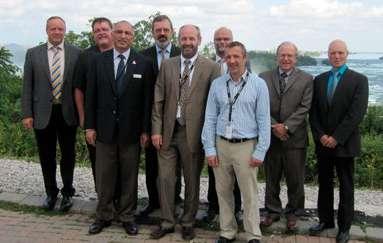
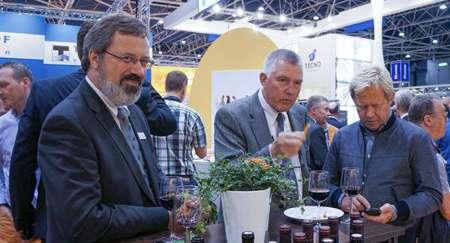
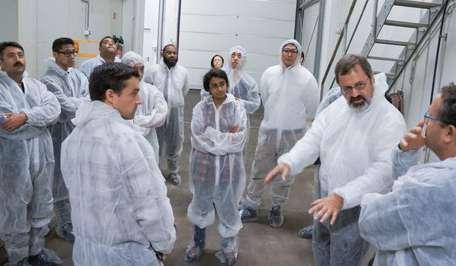 INTERNAL
INTERNAL
The right recipe for a fulfilling professional life
feed mixtures for laying hens
Now we all know, there are people who fulfill the activities specified in their employment contract and others who fill them out completely, expand them and “live” them. Robert clearly belongs to the group of the last ones.
From the very beginning, he supported the entire Sales and TS team in all nutritional matters, at least as far as poultry is concerned.
Our customers around the world also appreciate his expertise. His work with us was characterized by numerous trips around the world to support our customers and colleagues.

He was also a welcome guest at international congresses and events, always coming up with interesting and instructive presentations and never at a loss for an answer in the subsequent discussion rounds. Even at our own training events, such as the LOHMANN SCHOOL, he usually gave a complete nutrition day and always answered specific questions from the participants.
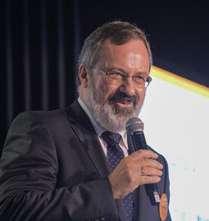
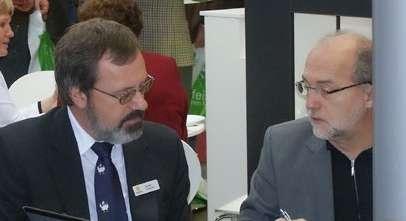
Robert was also significantly involved in the success and the good work of our feed mill.
Unfortunately, it would go beyond our time to go into detail about everything Robert has done for our company. Only one thing should be mentioned here: he has really earned the title of “nutrition expert”.
If you would like to read more articles by Robert Pottgüter, please feel free to visit our Toolbox or browse through previous issues of our Poultry News.
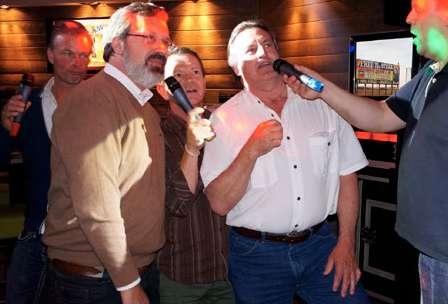
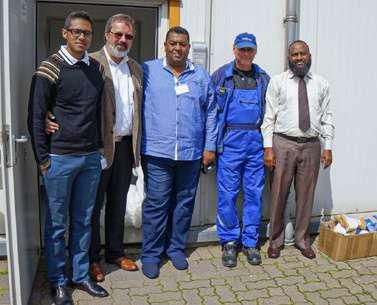

After a long time, we were finally able to hold our popular LOHMANN SCHOOL again here in Cuxhaven from 27.06. - 01.07.2022. The whole LOHMANN TEAM was very enthusiastic to welcome guests of the LOHMANN SCHOOL in person here in beautiful Cuxhaven after a long break.
Even though the journey was a bit difficult for some participants due to flight cancellations, lack of staff at the airports or visa problems, we were able to welcome all guests on Sunday evening at the Welcome Dinner.
Those who had already arrived on Saturday had the opportunity to take part in a leisure programme organised by our marketing department.
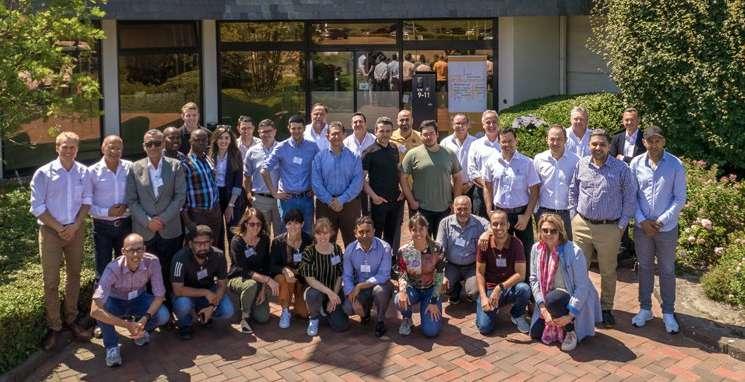
On Monday, things finally got started. Our Managing Director Christoffer Ernst had the opportunity to open a LOHMANN SCHOOL for the first time.
After a short introduction of our company followed by a short historical review of the international poultry and egg market, the next days continued with concentrated expert knowledge about our LOHMANN lines.
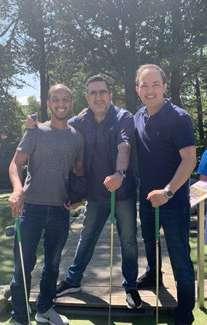
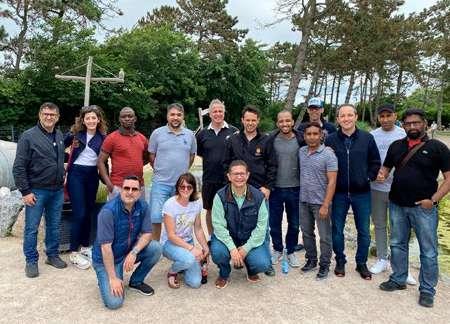
As it should be for a LOHMANN SCHOOL, we wanted to transmit the basics of poultry management, i. e basics for rearing and production, handling of hatching eggs, feeding, vaccination and much more. We didn’t want to leave anything out.
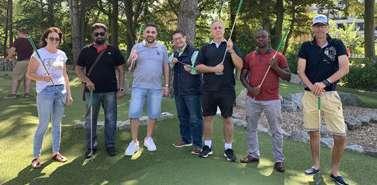
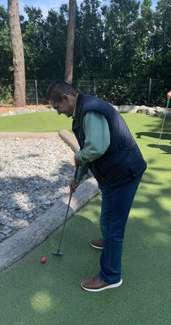

Through the joint leisure activities such as bowling and the common dinners, we hopefully succeeded again in creating a good sense of community, even after the longer break.
Because only as a group can good professional discussions and an exchange of experiences take place. These things are an essential part of a successful LOHMANN SCHOOL.
After a visit to the company headquarters in Cuxhaven, the certificates of participation were handed over on Thursday evening, as is traditional for a LOHMANN SCHOOL.
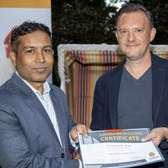
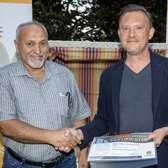
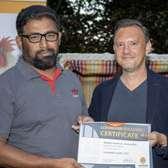
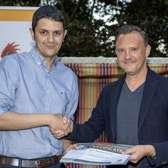
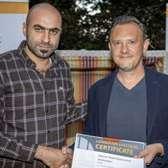
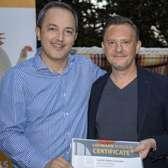
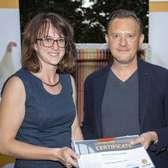
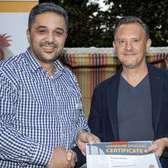
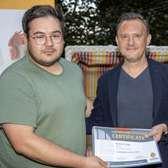
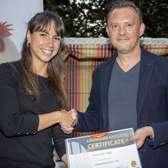
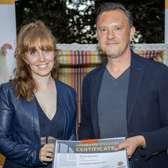
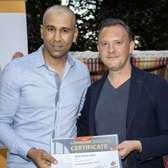
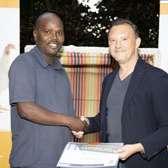
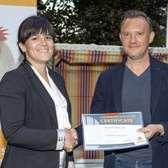
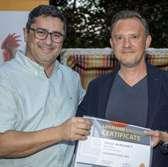
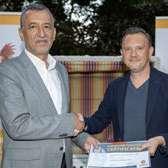
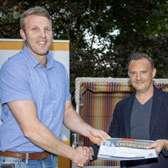
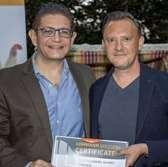
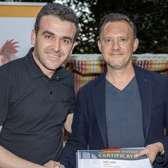
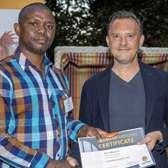

On Friday, all participants had the opportunity to visit the production facilities of Big Dutchman in Vechta, before everyone returned home for the weekend.
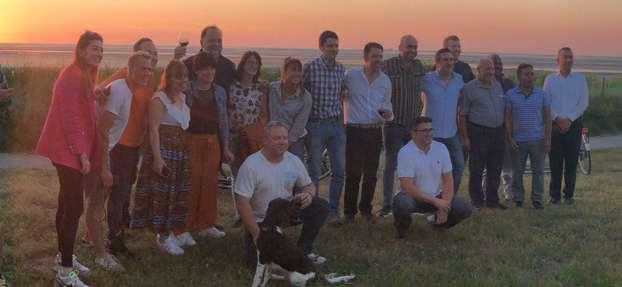
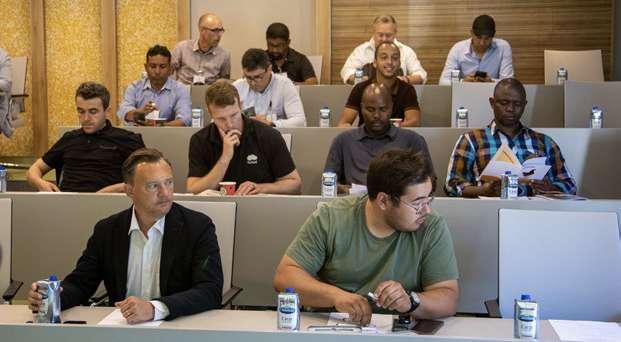
Even though many questions could already be clarified and problems solved during the event, there is still the possibility for all participants and of course for all customers in general to contact our technical service team: ts@lohmann-breeders.com. Our colleagues are happy to answer all questions about poultry management and are always happy to actively support our customers.
If you are particularly interested in a topic, you can of course visit our website. In our toolbox there are different articles for the four major topics: nutrition, management, veterinary and incubation. Most of them are also available to listen to in our podcast.
An event is successful when the guests feel comfortable and take away valuable information. We hope that we have succeeded in this and would be pleased to welcome many participants again at one of our various other events.

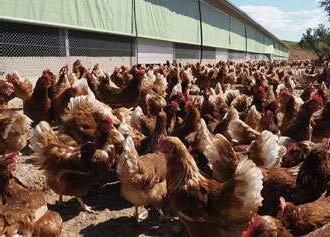
 Nicole Rehse PR / Communication
Nicole Rehse PR / Communication
After a break due to the pandemic, the LOHMANN SCHOOL CAGE FREE is finally returning to Cuxhaven as an attendance event.
The full list of participants is joined by a full programme on the topics of management, animal health and feeding specifically tailored to the cage free sector.

This year’s participants came from Australia, Italy, Canada, the Netherlands, Spain, the Philippines, Thailand, Singapore, Sweden, France, Poland, Switzerland and the UK.
No distance was too far to listen to our experts and to gather and exchange new experiences and ideas.




The days were filled by our team of experts with a diverse programme that was precisely tailored to the field of alternative management.
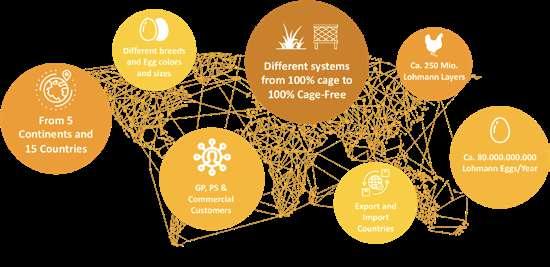
Global Technical Service Flock Management




 Mark Allen
Dr. Matthias Schmutz Director of R&D
Farhad Mozafar Director of Global Technical Service
Andreas Bublat Global Technical Service Veterinary Specialist
Ron Eek
Global Technical Service Flock Management
Eduardo Bernardi Bus Development Manager Asia Pacific
Matthias Voss Veterinary Scientific Director
Juan Valle Global Technical Service Nutrition
Björn Andersson Deputy Director of Research & Development/Genetics
Mark Allen
Dr. Matthias Schmutz Director of R&D
Farhad Mozafar Director of Global Technical Service
Andreas Bublat Global Technical Service Veterinary Specialist
Ron Eek
Global Technical Service Flock Management
Eduardo Bernardi Bus Development Manager Asia Pacific
Matthias Voss Veterinary Scientific Director
Juan Valle Global Technical Service Nutrition
Björn Andersson Deputy Director of Research & Development/Genetics
What do you know about chicken?
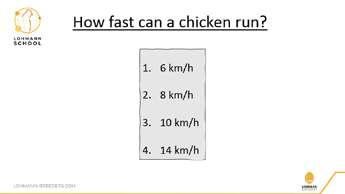

After the general introduction of LOHMANN BREEDERS and the individual participants and their countries, general knowledge in the poultry sector was first tested with our “Chicken Quiz”.
There were multiple choice questions, and the answers were discussed in small groups. Here is a small selection of the questions.
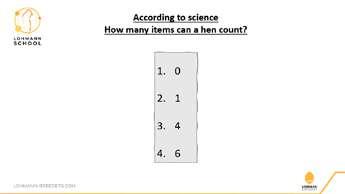

So, would you have known?
After this little warm-up, we continued with the basics, i.e. “Genetics & Breeding for Cage Free” and the question “What is Cage Free? Imprinting and Beyond”.
Biosecurity, rodent control, nutrition, rearing management - there was no relevant topic that was not covered in the following days.
A special feature of this year’s SCHOOL was the large part of practical exercises, especially on Thursday and Friday. After all, things that you have “experienced” yourself remain better in your memory than things that you have only heard. We took advantage of this and, in addition to the practical sessions, also tried to make the lectures “hands-on”.
Of course, as usual at a LOHMANN SCHOOL, there was plenty of time for questions and discussion. After all, the exchange of experiences among each other is just as important as the expertise presented.
After all, our specialists also learn from you, our customers. That is why ALL participants benefit from our events, the audience and the speakers.


Although many questions have been asked and many problems could be solved, of course, you have always the possibility to contact our technical service team outside our seminars. Our team is well prepared to give you good advice in all subjects:

Lecture meets practice - any questions?
The days filled with information were followed by a few pleasant hours within the group in the evenings.
Common dinners were on the daily programme, along with small activities like bowling and karaoke. After all, a bit of fun is a must.
An event is successful when guests feel good and take valuable information with them. We hope that we could achieve that and are really looking forward to LOHMANN SCHOOL CAGE FREE 2023.
Will you be there next time?
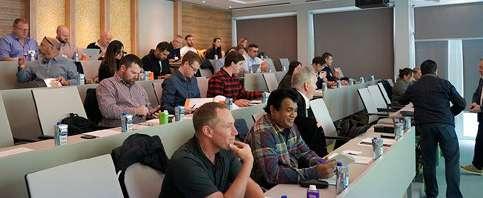
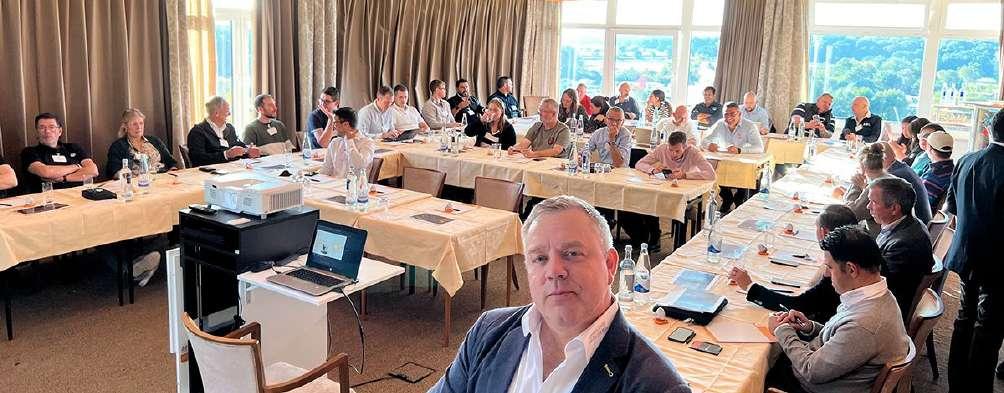
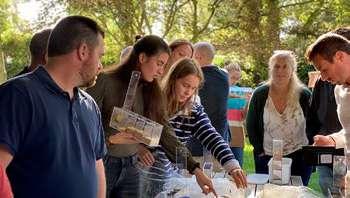
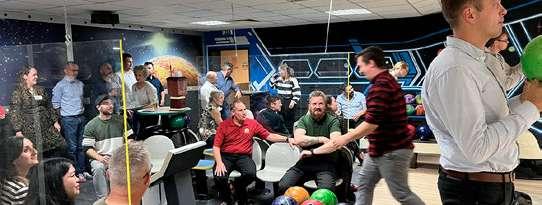
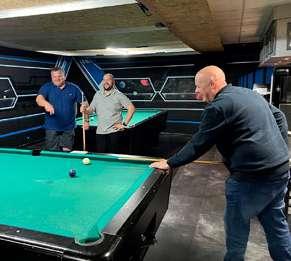
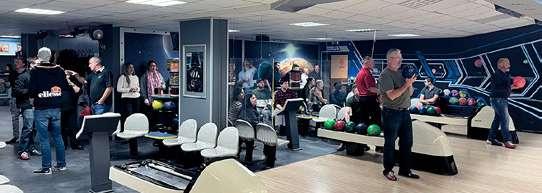
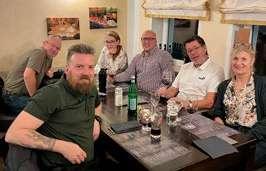
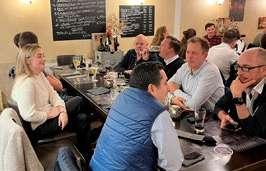
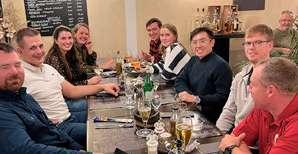
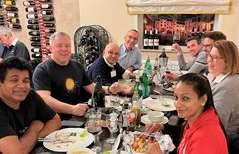
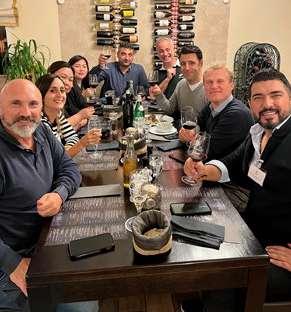

The fifth month of the year, the merry month of May, stands for growth and spring, everything awakes to life. After all the Corona restrictions and the long winter period, we at LOHMANN BREEDERS are now also full of energy and ready to take off, especially with view to face-to-face events in our newly designed auditorium - our pride and joy.
Therefore, we already used the first days of May to start with the events planned for this year. The first seminar was the LOHMANN DEUTSCHLAND TECH SCHOOL, which we organized together with our sister company, LOHMANN DEUTSCHLAND GmbH.
This training event was for us and our sister company, the first of its kind, but certainly not the last.
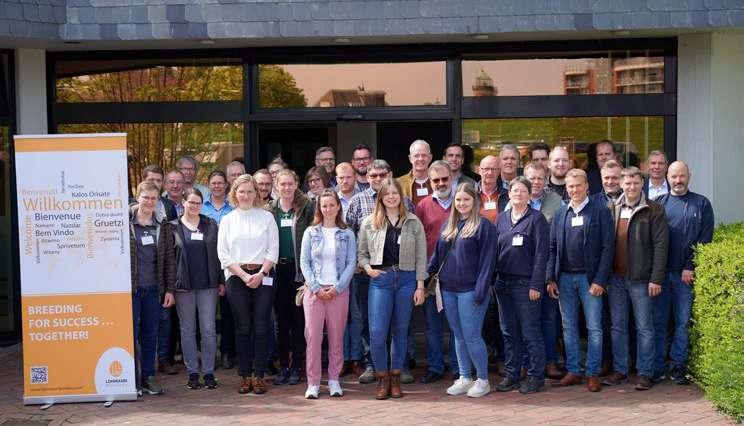
The seminar covered all important topics for layer farmers such as genetics, nutrition, animal health and general management topics.
Our experts Dr. Andreas Bublat, Robert Pottgüter, Ron Eek and Dr. Matthias Voss provided all the important information on these topics and were also on hand to offer advice and support after their presentations and during the well-deserved breaks.
Furthermore, we were also able to invite three external speakers, who gave presentations on two additional topics. Laura Zumbrink, from AAT GmbH spoke about “Sex determination in eggs”, a topic that is currently of great importance for the German poultry industry.

Dr. Andreas Bublat Global Technical Service Veterinary Specialist


LOHMANN DEUTSCHLAND TECH SCHOOL
Director Global Support, Big Dutchman International GmbH







Training officer, Big Dutchman International GmbH
As is customary at the end of our training events, a certificate of attendance was handed out to the participants of the Lohmann Deutschland Tech School.
We welcomed 37 participants, customers of LOHMANN DEUTSCHLAND GMBH
It was an all-round successful and informative event for the guests, but also for us, the LOHMANN BREEDERS team, as the knowledge of our experts always results from a lively exchange of opinions and experiences with the customers.
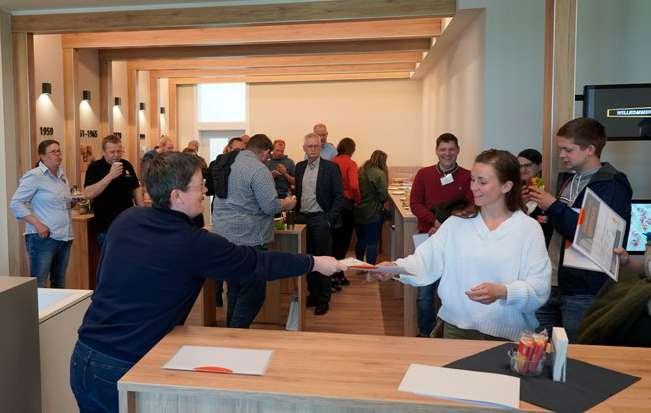
would like to thank LOHMANN DEUTSCHLAND GmbH for the good cooperation and all the participants for their attendance. Thus, we once again had the opportunity to expand our knowledge through experience reports from the organic and alternative sector.
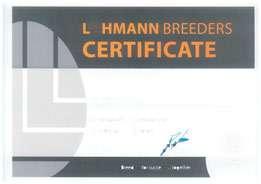
We
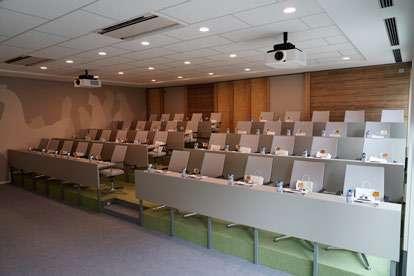

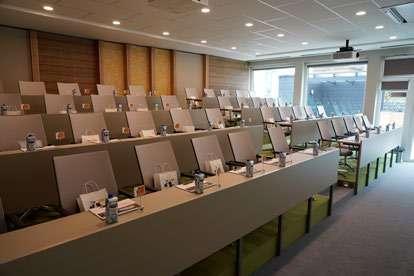

This was the theme of our popular LOHMANN SCHOOL this time held in Almaty, Kazakhstan from 12 - 16 September 2022. With a total of 83 participants from Russia, Kazakhstan, Uzbekistan, Tajikistan, Georgia and Azerbaijan, the event was very well attended, and our mix of conference and leisure was also very well received in Almaty!
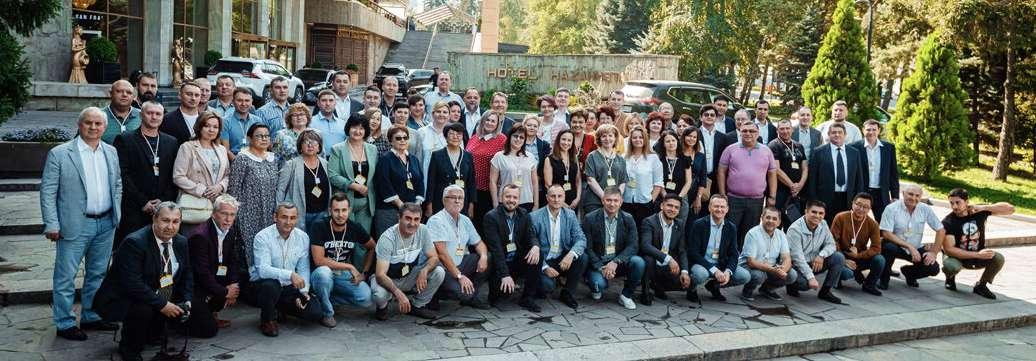
After all guests were welcomed with a welcome dinner on Monday evening, the varied programme then started on Tuesday morning. Some members of our Global Technical Service Team also travelled to Kazakhstan to support their colleagues.
Together, of course, this resulted in a concentrated package of expertise and information on genetics, hatchery, nutrition, veterinary and economic aspects. As usual with all our training events, there was plenty of time to answer participants’ questions and, if necessary, to discuss them in the group.
We were also very pleased to welcome some guest speakers who made the programme even more diverse. We would like to thank Javier Ramírez, Managing Director Global Layer Genetics GmbH, Alexandr Gorneyev - DSM Russia, Vera Chichkina - Production Manager Sverdlowskaya Pticefabrika.
Norbert Mischke Sales & Technical Service C.I.S.




 Dr. Matthias Voß Veterinary Scientific Director
Dr. Matthias Voß Veterinary Scientific Director
Yaroslav Bortyuk Sales & Technical Service C.I.S.
 Dr. Matthias Schmutz Director of R&D
Dr. Matthias Schmutz Director of R&D
Sergey Kulagin
Sales & Technical Service C.I.S.
Global Technical Service Incubation

In addition to all the technical excursions into the different areas of poultry management, there were also excursions to the beautiful city of Almaty and the surrounding area.
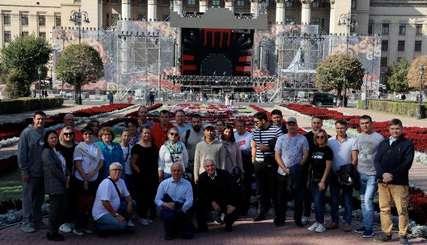
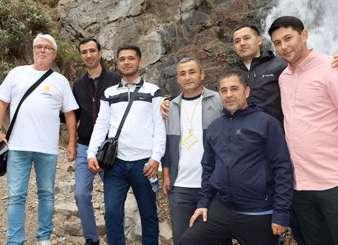
On Wednesday and Thursday afternoons, the group went on a guided tour of the beautiful city of Almaty and visited the Turgen Waterfalls and Lake Issyk.
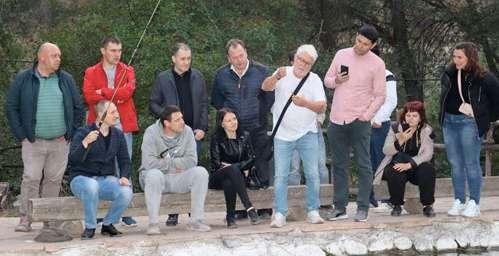
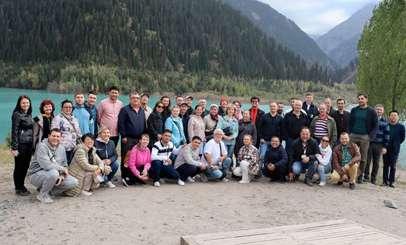
To bring this great event to a festive close, a gala dinner was held on Thursday evening before the bags were packed for departure on Friday morning.
We would like to thank all participants once again for attending our event and hope that all our guests had a good stay. Our team always enjoys spending time with customers and colleagues. This is exactly what makes our schools - the good and close connection to our customers all over the world and the resulting exchange of experiences!
Almaty, the largest metropolis in Kazakhstan, is located in the foothills of the Trans-Ili Alatau mountain. It served as the country’s capital until 1997 and has remained Kazakhstan’s commercial and cultural centre.

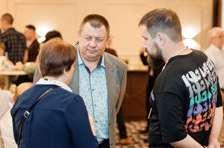


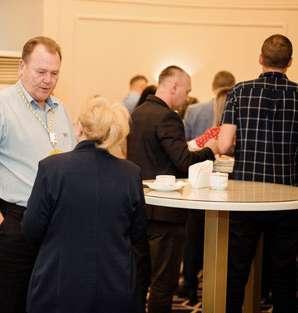


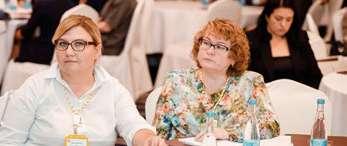

Landmarks include the Central State Museum, which displays thousands of historic Kazakh artefacts. In the centre is Panfilov Park with the bright yellow spires of Zenkov Cathedral, a Russian Orthodox church from the tsarist era.

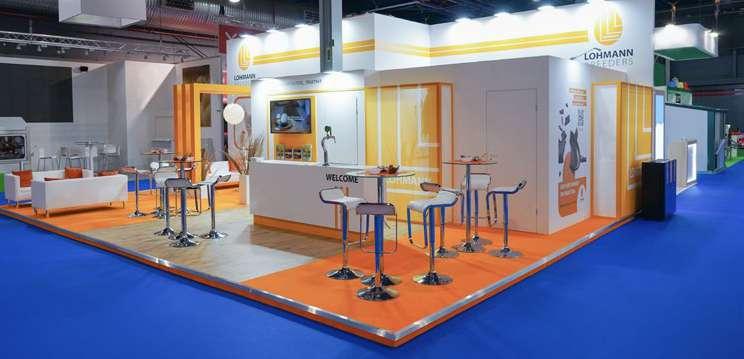

VIV Europe took place from May 31 to June 2 in Jaarbeurs-Utrecht, the trade fair complex in the heart of the Netherlands. With about 25,000 expected visitors from 136 countries and almost 600 exhibitors, VIV Europe is a real top event for the industry. Professionals involved in the production of pork, poultry, eggs, fish and dairy products have plenty of reasons to meet in Utrecht at this World Expo from Feed to Food, which gathers and promotes the latest innovations in the industry every four years. For the poultry industry, it is considered as one of the most important platforms worldwide.
As an internationally successful company, we could not miss one of the most important exhibitions worldwide. So it was a done deal that we want to be present with our own booth at the exhibition and thus show our strong position on the international market.



The intensive preparations of our marketing department really paid off. A complete success!
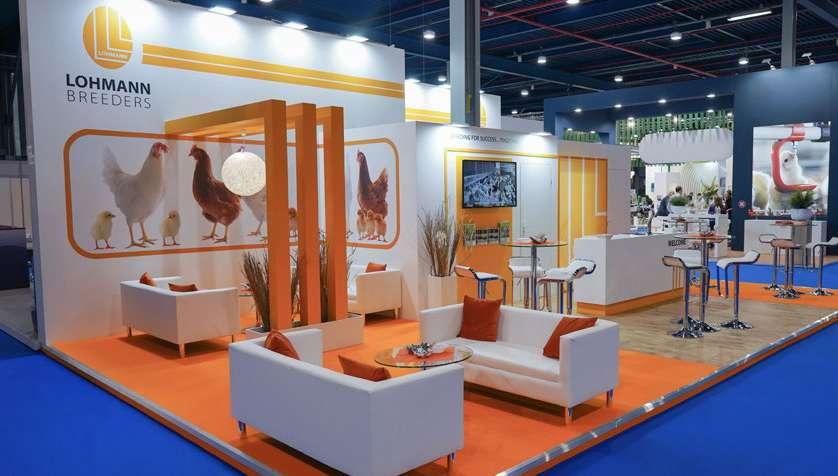




And finally it was here, the long-awaited first day of the fair. Our team was ready and waiting for the first interested visitors. And they came in huge numbers, since, as is generally known, personal contact and exchange of experience with customers and competent advice on all important issues of poultry management are the absolute strengths of LOHMANN
Therefore, our sales and technical service team could hardly wait to welcome the visitors at our stand. Present were:






 Marek Malkowski Area Manager Europe
Davide Assirelli Global Technical Service Incubation
Mohammed Chairi Business Development Manager Africa & ME
Matthias Schmutz Director of R&D
Farhad Mozafar Director of Technical Service
Dr. Andreas Bublat Global Technical Service Veterinary Specialist
Viola Holik Area Manager Africa
Robert Pottgüter Global Technical Service Nutrition
Ron Eek Global Technical Service Flock Management
Dr. Matthias Voß Veterinary Scientific Director
Marek Malkowski Area Manager Europe
Davide Assirelli Global Technical Service Incubation
Mohammed Chairi Business Development Manager Africa & ME
Matthias Schmutz Director of R&D
Farhad Mozafar Director of Technical Service
Dr. Andreas Bublat Global Technical Service Veterinary Specialist
Viola Holik Area Manager Africa
Robert Pottgüter Global Technical Service Nutrition
Ron Eek Global Technical Service Flock Management
Dr. Matthias Voß Veterinary Scientific Director
As always, our marketing team took care of the smooth running and the culinary needs at the booth.BREEDERS.
VIV Europe also had a very special significance for our two new managing directors Jörg Heier and Christoffer Ernst. As the first major event in their still short time in the position, they were finally able to represent LOHMANN BREEDERS live as the new head of management.

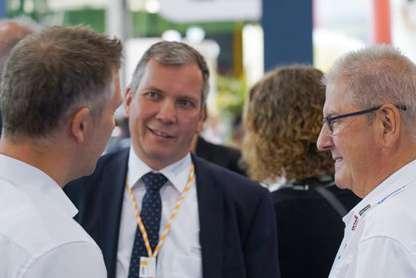 Christoffer Ernst Managing Director Sales
Christoffer Ernst Managing Director Sales
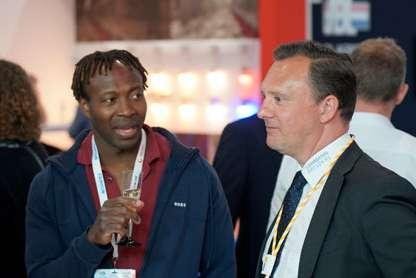 Jörg Heier Managing Director Operations
Jörg Heier Managing Director Operations

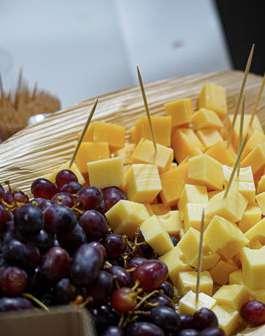
The very first day of the fair was a complete success for us and this had to be celebrated properly. We took this as an opportunity to invite all customers and business partners to our Booth Release Party. With drinks, snacks and good conversations we ended the successful first day of the VIV Europe with numerous guests.
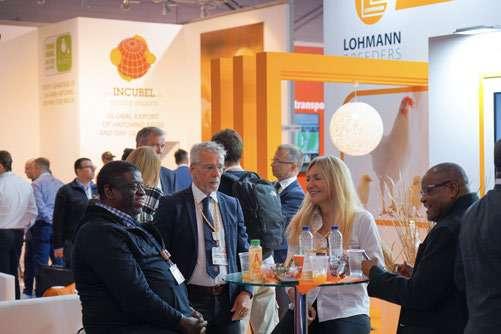
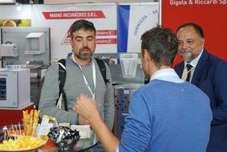
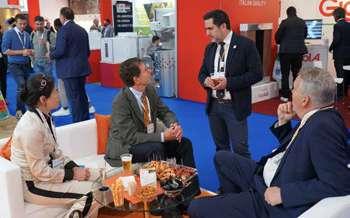
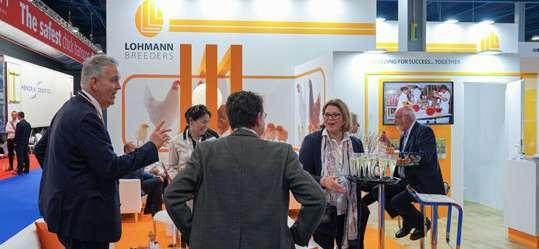

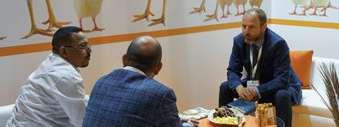
Especially for the European market, our Management Guide for Alternative Housing serves as the basis for successful poultry management, as it covers all important areas, such as feeding & nutrition, biosecurity, production management, etc.


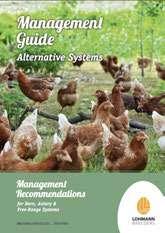
Until now, this detailed guide was only available to our customers as an e-guide, as this meant that all the important aspects could be supported with videos and lots of extra information.
Now, finally, we have succeeded in creating an equally comprehensive version also as a print version. But LOHMANN BREEDERS would not be LOHMANN BREEDERS if there was not much more innovation behind it.
Our management recommendations for floor, aviary and free-range management are peppered with QR codes so that our customers can easily call up additional, detailed information on the areas of interest to them.

In addition, the performance data of the individual lines for alternative husbandry are summarized in an extra guide!
With our trade fair presentation and especially with our new Management Recommendations, hot off the press, we have once again proven that we at LOHMANN BREEDERS still fully stand behind the principle even after 65 years: Breeding for Success … together!
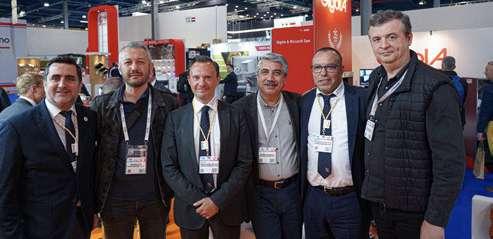

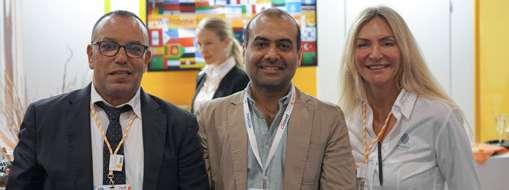

At the beginning of the year, nobody knew how the year would develop in terms of events.

Fortunately, the demand for LOHMANN presence events was very high from the beginning, so that we were able to hold many smaller customer seminars and visits to our company headquarters in Cuxhaven in addition to our large customer training courses such as the “LOHMANN SCHOOL”.
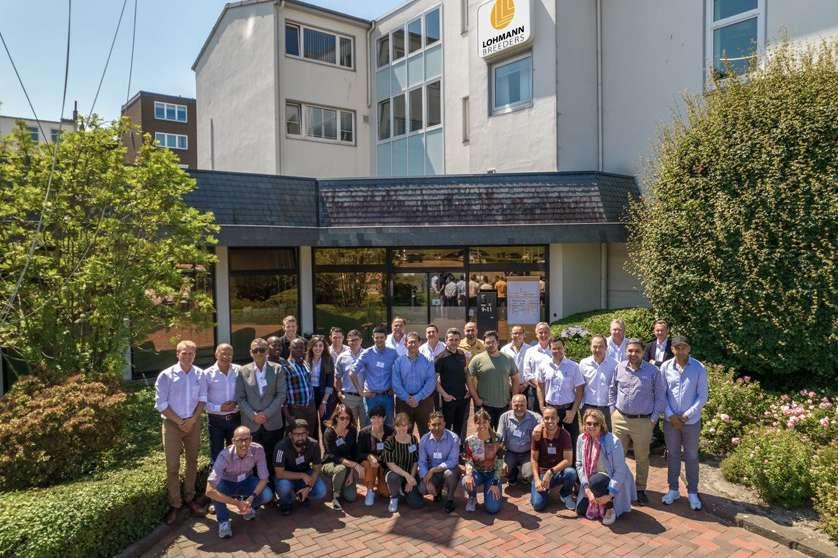
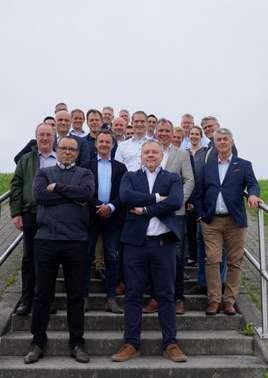
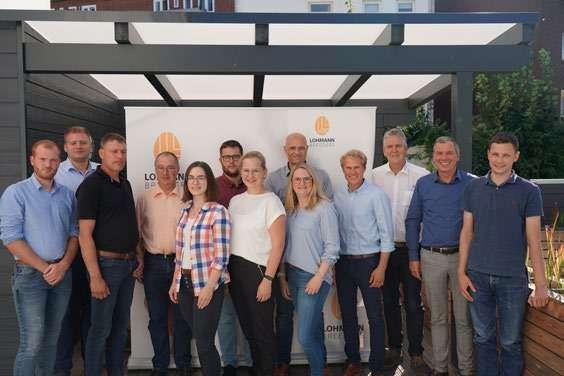
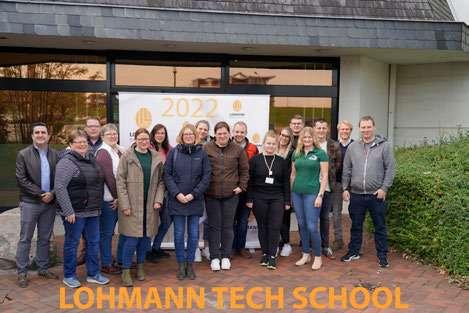

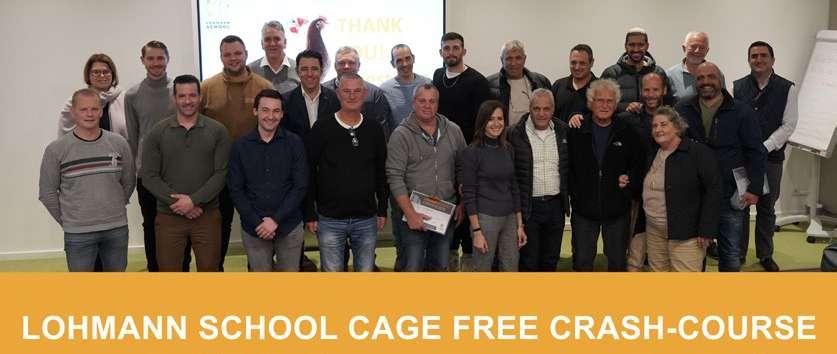
If you are interested, please contact your LOHMANN Key Account Manager.
We are already looking forward to seeing you again at one of our events!

LOHMANN BREEDERS is known for the excellent customer service, i.e. after sales service. Our team is always ready to help with minor and major problems directly on site and to assist our customers with practical advice.
At the beginning of the year, part of the Technical Service Team went to Africa to make a service visit to Quantum Foods and its sites in Uganda and Zambia. The operations visited in Zambia and Uganda include, in addition to the broiler area, parent stock rearing and production facilities, own hatcheries as well as a feed mill and own layer farms.
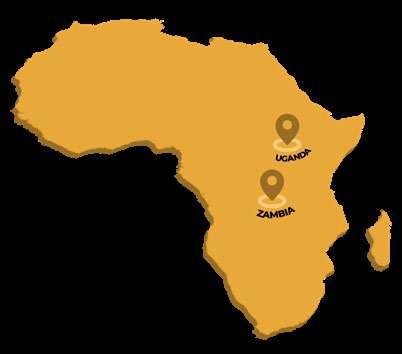
Present were Viola Holik, responsible for the technical service and sales area Africa and two members of our Global Technical Service Team, Davide Assirelli, specialized in all hatchery related topics and Dr. Andreas Bublat, who supports the team as a veterinarian.
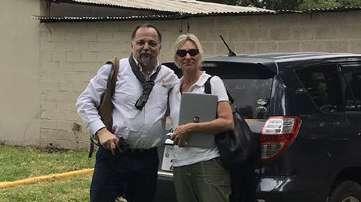
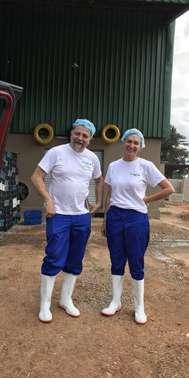
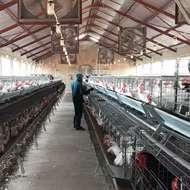
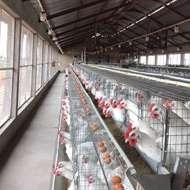
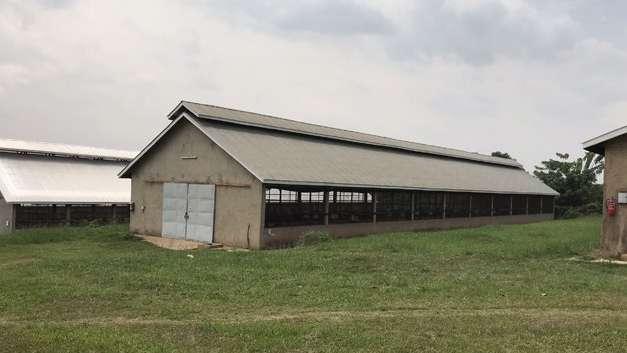
In this very dynamic constellation, all open questions could be answered and any difficulties that arose could be clarified directly on site.
And the beautiful African landscape and a little bit of local culture were free of charge for our team
We would like to thank the team of Quantum Foods for the nice welcome and the good organization of the whole stay.
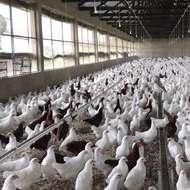
Quantum Foods is a diversified feeds and poultry business providing quality animal feeds and poultry products to South African and selected African markets and is the largest producer of eggs in South Africa. Quantum Foods is a focused primary agricultural business that has four focus areas namely animal feeds, eggs, layer and broiler farming and related businesses on the African continent outside South Africa
Quantum Foods has played a part in growing business in Africa since 1996 and today, they are actively running businesses in Zambia, Uganda and Mozambique.
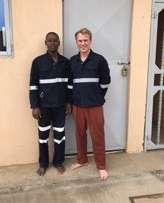
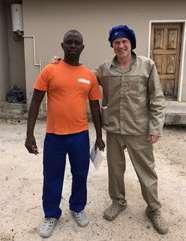
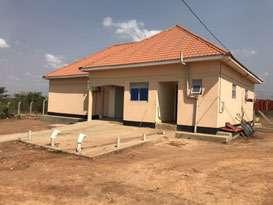
For further information, please visit the company’s website: https://quantumfoods.co.za/
By the way, Hendrik Albertus Lourens, Chief Executive Officer at Quantum Foods 2021 was a guest on the panel discussion at our 58th Franchise Distributor Meeting. Read more at https://lohmann-breeders. com/fdm-went-online-the-bridgeto-the-future/ or watch our video: https://lohmann-breeders.com/ videobox/2021-lohmann-58th-fdm/
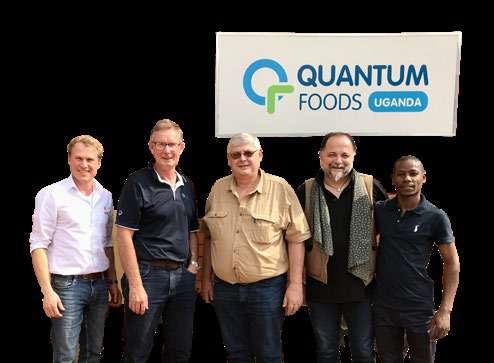


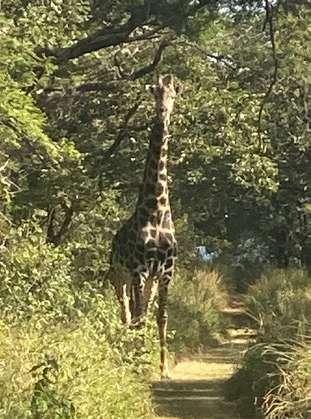


successful cooperation with IEF continues
In 2019, the first Global Egg School took place in Mozambique in cooperation with IEF. After this event was so well received, we decided to continue the project. So there was a school again this year, this time in Zimbabwe. Due to the current corona situation, the training was again only online, but nonetheless profitable for the participants.
IEF is continuously committed to sharing and using the collective knowledge and experience of the egg industry to empower less privileged populations to realize the full potential of eggs. In this context, IEF launched a new project in 2019 in partnership with LOHMANN BREEDERS: the so-called “Global Egg Schools”. The aim of these schools is to teach the basics of poultry farming to communities in need.
By starting the Global Egg Schools in 2019, IEF was able to extend the reach of its educational support to even more people - and who would be more suitable as a partner for such a project than LOHMANN BREEDERS? We have been supporting different charity projects for many years by donating to various foundations and aid organisations. But in addition to our existing social commitment, we also wanted to help in another form, and do something to support communities in need in a more sustainable, long-term way. So why not use our profound technical know-how in a different way than just for purely business purposes?
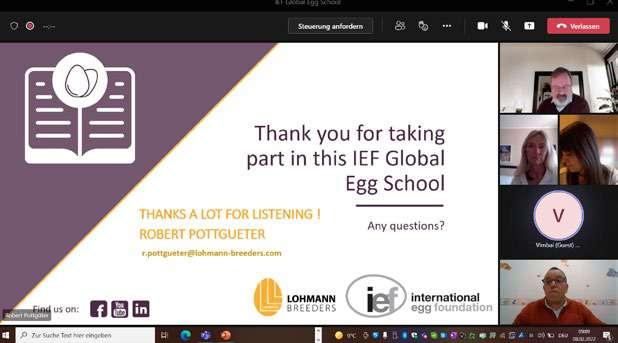
After the first virtual training in 2021, this year’s Global Egg School started again as an online seminar on 07 February 2022 in Bulawayo, Zimbabwe. Due to the ongoing Corona pandemic, this was the only way to hold the training, but it was no less informative or beneficial for participants than a face-to-face event.
20 participants, including production managers and also breeders, attended the training at Sondelani in Bulawayo and received extensive training covering a wide range of topics. The three main topics of the seminar were layer management, biosecurity and nutrition. Our team was accordingly adapted to these topics and predestined for the African region. It consisted of Viola Holik, the responsible sales and TS person for Africa, our expert for feeding Robert Pottgüter and last but not least Mohammed Chairi, LOHMANN’s Business Development Manager for Africa and the Middle East.
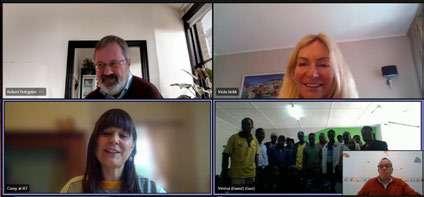
Just as with our own customer training courses, such as the LOHMANN SCHOOL or the LOHMANN HATCHERY COURSE, it was important for us to specifically address topics that proved to be of particular interest to the participants during the event. Based on the questions that could be asked after the individual presentations, the areas of prolapse, piling, cannibalism and mortality during the production cycle were once again closely examined. Thanks to the profound knowledge of our technical service team, all questions could be answered immediately and in detail. To read up and refresh on individual topics, participants were encouraged to visit the Toolbox section of our website (https:// lohmann-breeders.com/toolbox/).
How practical and flexible our experts are was shown by the example of a participating veterinarian who had questions about the timing of his daily farm visits. Effectiveness is our business and of course our team had advice and suggestions for improvement ready in this case as well.
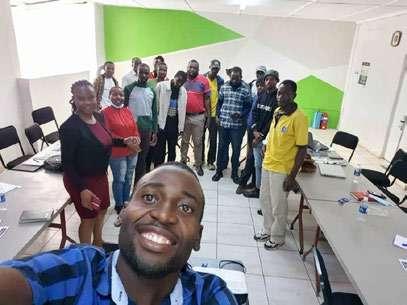
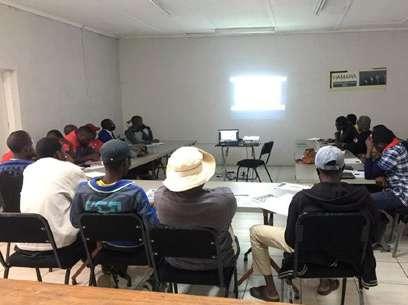
The aim of this virtual school was to provide participants with technical training to improve their understanding of key processes and enable them to pass on this knowledge to their team and other farmers in their community.
This goal was more than achieved. The school provided expert insights into the management of laying hens with a particular focus on why certain processes are important.
So it shows once again that our motto applies everywhere: Breeding for success - together!
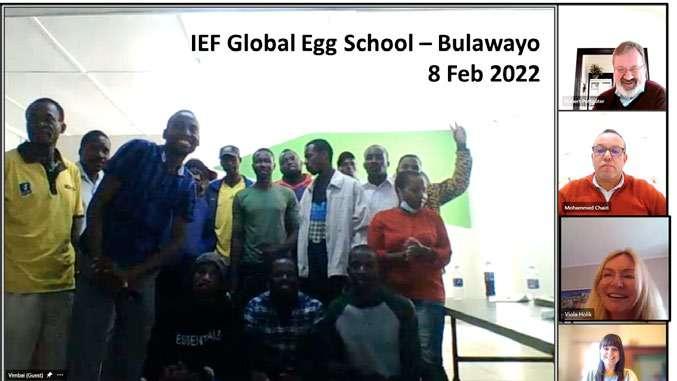
Zimbabwe is located on the beautiful continent of Africa and as a landlocked country has no own access to the sea. It borders on South Africa, Botswana, Zambia and Mozambique.
Bulawayo - the capital of the province of North Matabeleland, located in the southwest, is Zimbabwe’s second largest city after Harare with its 1.5 million inhabitants. The commercial center for the surrounding area is also a rail hub and university city.
The metropolis of the south has factories, power plants and a large exhibition center. Bulawayo was considered the political and administrative center as well as the best business and industrial location in the southwest. Since Harare has taken this place, Bulawayo has been designated the cultural capital of Zimbabwe.
Breeding for success – together!
Since several decades Ghen Corporation of Gifu, Central Japan successfully distributes LOHMANN LSL breeders in Japan. Over the years the market share has grown to an impressive 85 % of all white layers. In Japan LSL is called Julia.
Early September 2022 Ghen Corporation organized their 25th Distributor Meeting. The event was attended by more than 30 staff members of all layer hatcheries. On behalf of EW Group Mr. Sijne van der Beek presented a paper on genetics. Mr. Ron Eek updated the audience on developments in the global egg market.
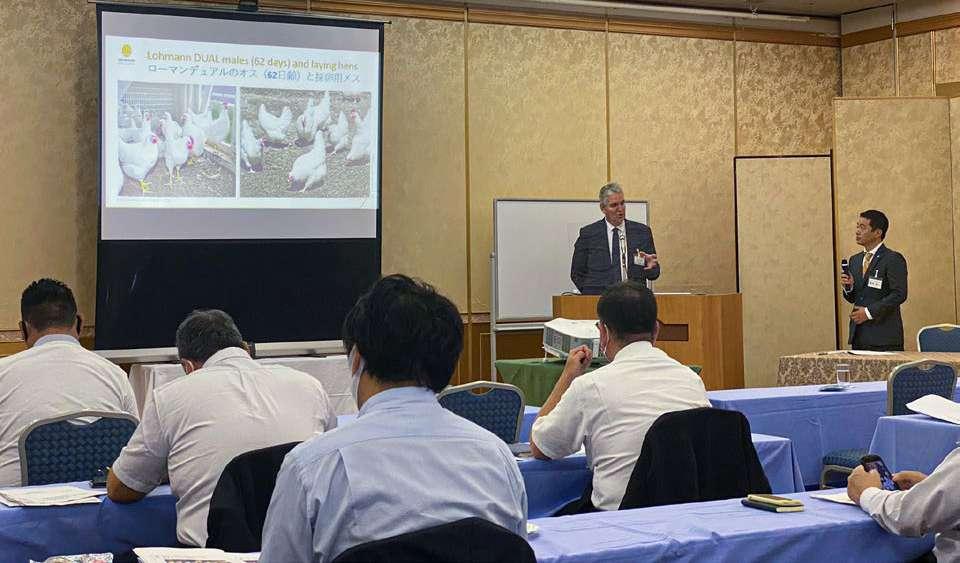 CUSTOMER NEWS |
LOHMANN
CUSTOMER NEWS |
LOHMANN
How did we achieve such an impressive growth of LSL in Japan?
In the early years we had only one white variety LSL. Due to different preference for egg size in various regions, LOHMANN genetics started to develop varieties with different egg weight patterns.
After the introduction of the LSL LITE variety to complement the LSL CLASSIC, more birds were placed in different regions.
The Japanese table egg market is characterized by urban areas where people prefer medium sized eggs and more rural areas where large sized eggs are preferred.
Besides diversification of egg size genetics also realized impressive progress in productivity and egg quality traits, which made the LSL the most popular white egger in Japan.
Committed distributor
Ghen Corporation of Gifu is the only company with layer-type grandparent stock. This gives them a large advantage, as they are not restricted by import bans due to the ongoing global Avian Influenza restrictions.
They supply parentstock to merely all layer hatcheries spread over Japan. Their GP facility is located in an isolated area in northern Japan, with state of the art facilities and strict biosecurity.
Ghen Corp. also has a team of specialists who support their customers both in PS-, hatchery- and commercial layers issues.
The Japanese consumers demand excellent quality in all respect.
The Japanese egg market is highly quality orientated and therefore breeding companies have to concentrate not only on productivity of the birds, but also both external- (shell) and internal- (albumen height, absence of blood and meat spots) quality are crucial traits.
The table egg market is predominantly white, but brown and tinted eggs are gaining popularity with the consumer.
Estimated market shares:
White 73% (80 million birds)
Brown 21% (23 million birds)
Tinted 6% (7 million birds)
On 6th and 7th April Ghen Corporation, the distributor of LOHMANN LSL breeders (called Julia in Japan), organized the annual Sakura ‘Cherryblossom’ technical meeting for their parentstock customers.
Due to the ongoing Covid restrictions the event was done online. More than 100 staff members from the 16 leading layer hatcheries participated in the virtual show.
The meeting started with a welcome speech by Ghen’s president Mr. Watanabe.

Ron Eek presented a paper to update the audience on developments in the European egg business. Special attention was given to the animal welfare related issues of ban on euthanizing day-old layer male chicks in Germany and the ban on beak trimming.
Japanese egg producers are highly interested in developments in Europe and other regions where cage-free egg production gains popularity.
In Japan, however, merely all eggs are produced in conventional cages; only a handful of companies have introduced enriched cages or small cage-free facilities.
The Japanese consumer is more focused on food security and expects perfect, clean eggs and is less concerned about the system of egg production.
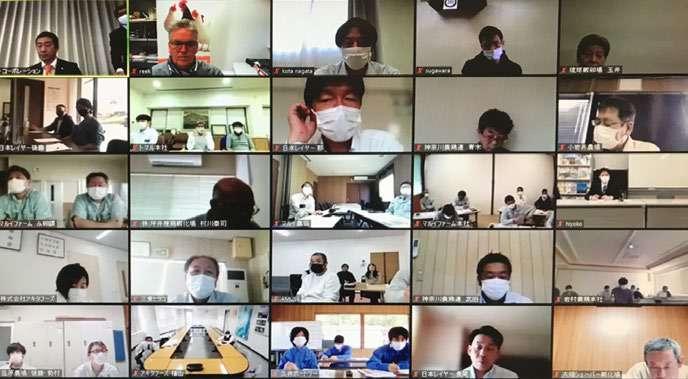
The second presentation was done by LOHMANN nutritionist Robert Pottgüter: He focused on aminoacids in layer diets and eggshell stability.

Moreover, breeder performance of each company was ranked and the top performers received an award.
On the second day Ghen and LOHMANN staff addressed issues forwarded by the participants. In those sessions flock management, hatchery and nutritional matters were discussed lively.
The total egg production is 2.6 million tons per year. Japanese are amongst the highest egg consumers worldwide, per year each person eats around 340 eggs! Around 45% is sold as table eggs, 30% is used in the food business and restaurants and the remaining 25% is processed in food.
Table eggs are normally packed in clear plastic boxes of 10 eggs. 60 to 70% are sold as mixed pack with eggs of different sizes, 30 to 40% are sized pack.
In the mixed pack you may find different grades like S, M and L sized eggs but the total weight of 10 eggs should be 610 gram for white and 630 gram for brown eggs.
Eggs are a traditional item in Japanese cuisine and considered healthy and wholesome. Many eggs are eaten raw with rice or noodles. Besides, eggs are considered an inexpective source of high quality protein; the retail price remained almost stable since 70 years.
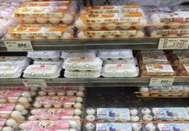
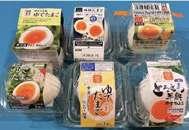
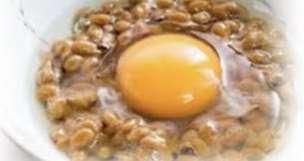

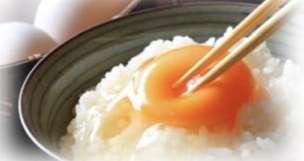
Japanese egg consumers are very quality conscious; preferred size is M & L class around 63 gram per egg. They prefer white shelled eggs (about 60%), brown (30%) and tinted (10%) eggs are mainly sold as socalled branded eggs.


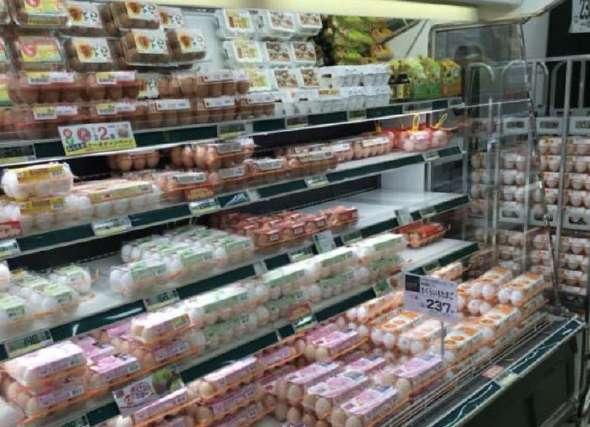
Outer egg shell must be smooth and absolutely clean (eggs are washed in packing station). Shell colour should be uniform, without pale discoloured eggs. Internal egg quality must be perfect as well, much attention is paid to absence of blood- and meat spots and a good albumen height.
Each year about 110 million layer chicks are raised. Ghen Corporation supplies nearly 90% of all layer breeders in Japan. Since the early nineties the share of LSL commercials has grown to more than 85% of the domestic white egg layers.
LOHMANN BREEDERS supplies both LSL CLASSIC and – LITE Grandparents to Japan to safeguard continuous production of breeding stock.
Both breeds form a perfect match for producers who need medium and large sized white shelled eggs.

Our great partner and friend in Ecuador, Inbubandina S.A., has completed 30 years dedicated to poultry production. The whole team of LOHMANN BREEDERS says congratulations and thanks for the excellent cooperation.
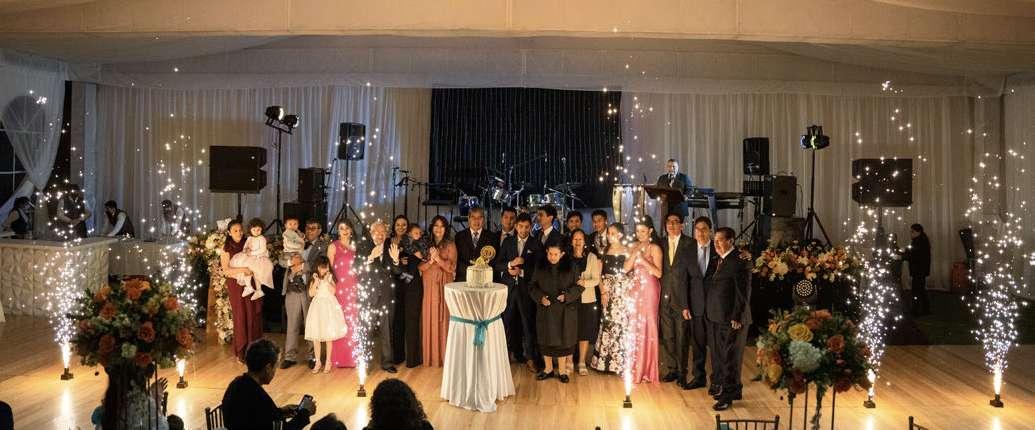
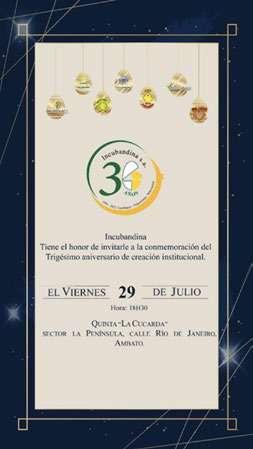
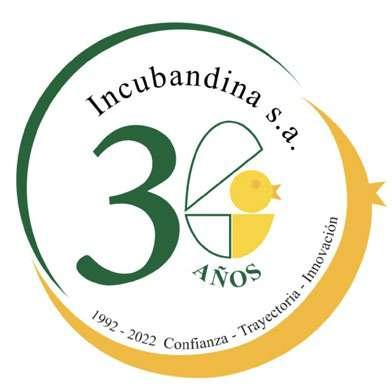
The story of success began in 1992 thanks to the efforts of a group of poultry farmers from the province of Tungurahua. This group could not find sufficient supply of layers with high genetic quality and exceptional potential. Thus, they joined together and founded the company Incubandina S. A. which is set out to supply local and regional markets with high performance layers.
For this, Incubandina S. A. covers two types of business out of one hand. By B2B (Business to Business) they offer baby chicks to the egg producers and in parallel they sell food products for the national consumer market, B2C (Business to Consumer). Incubandina’s aim: offering a better food future to Ecuador.
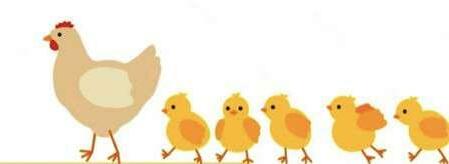
Development until today
Over the years Incubandina S.A. has been gaining strength in the poultry market. At present they rank amongst the most important companies in Ecuador in this sector, according to “EKOS” (Source: https://www.ekosnegocios.com/ranking-empresarial; EKOS is a portal of business news, business and economy of Ecuador and the world).
Today Incubandina continues its constant development and its business is characterized by steady growth. This growth and the ever-present vision, offering a better food future to Ecuador, leads also in animal husbandry to ever more optimal housing and breeding conditions in the production centers. To ensure the welfare of the animals and to provide the best products to the customers, that is the goal.
Thank you for a better future!
Incubandina S. A. stands for a better future. We, the entire LOHMANN BREEDERS team, are proud to be a part of this success story, a part of a better future. Thank you Incubandina S. A. for the good cooperation and your trust in our company.
Link to EKOS NEGOCIOS.
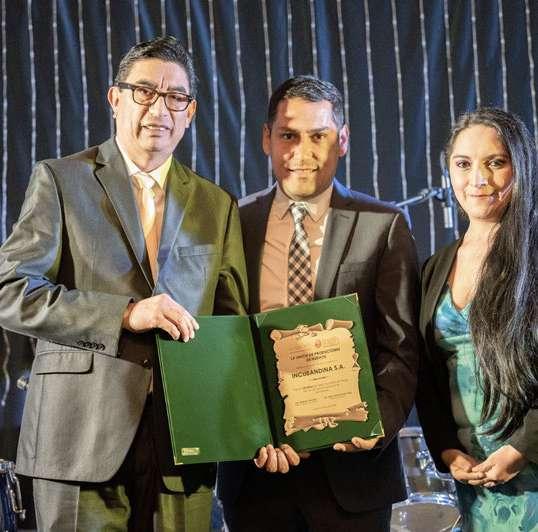
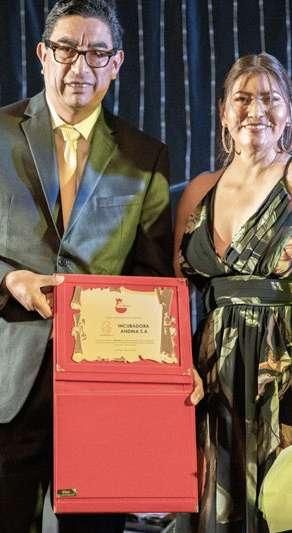
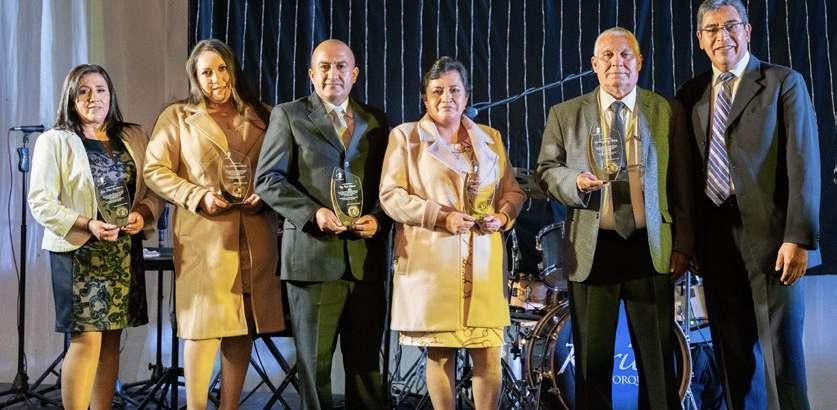

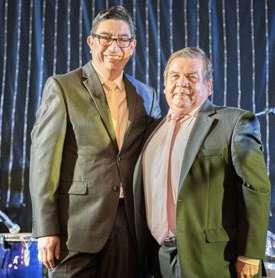
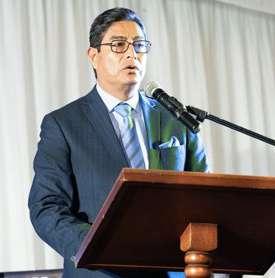
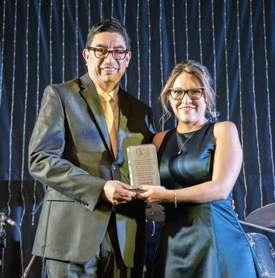
It all started in 1972 when two friends, Sedat Sırrı Sezer and İsmail Hakkı Yılmaz, founded HasTavuk for feed and table egg trading in Bursa. The company quickly grew, building up its own hatchery and parent stock farm, until 1988, when first LOHMANN white layer parent-stock chicks arrived.
There began the very fruitful cooperation between HasTavuk and LOHMANN BREEDERS. The first brown parent-stock followed in 1992 and we are very proud to have been part of this success story for so long.

The founder takes the floor
Who better to summarize this success story than one of the founders himself? Mr. İsmail Hakkı Yılmaz, did so in a very emotional speech on the occasion of the 50th anniversary celebration in Bursa.
“We established this company with Mr. Sedat 50 years ago. We met at a restaurant through friends and then we started such a business. We had nothing. We started by selling feed in a 50 square meter shop. At that time, we had a porter, an accountant, and Mr. Sedat and me. After 50 years, we have 2,200 employees today.”
Today, in fact, HasTavuk has production facilities all over Turkey, mainly in Bursa, Balıkesir, Eskişehir and Afyonkarahisar, and abroad in Georgia and Ukraine.
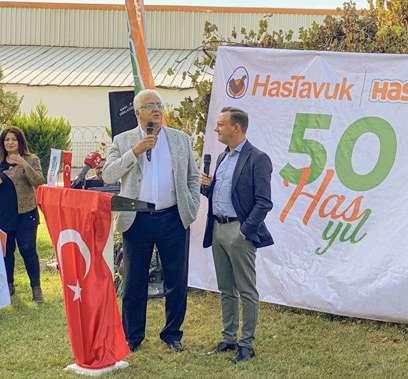
In total, there are 4 hatcheries, 3 feed production factories, 1 white meat production facility, 1 advanced processing facility, 9 pullet production and nearly 30 breeding farms.
Using innovations and the most advanced technology is what made HasTavuk different and led the company to success, which is certified with the quality and performance awards it has received.
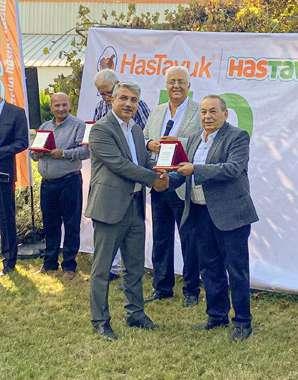
That is a good reason to celebrate. The anniversary cake was ready to be cut and Lohmann Breeders is delighted to be prat of that. Our Managing Director Mr. Christoffer Ernst as well as Mr. Mohammed Chairi, Business Development Manager for Africa and Middle East and our Director of Global Technical Service, Farhad Mozafar were involved in this honourable task and could take part on this great event where the founders as well as the next 3 generations celebrated together.
Mr. İsmail Hakkı Yılmaz, Chairman of the Board Mr. Müjdat Sezer, Vice Chairman of the Board Mr. Özgür Yılmaz, Members of the Board Ms. Özlem Yılmaz, Mr. Bahadır Sezer, Mr. Barış Sezer and the General Managers of the company Mr. Şahin Aydemir, Mr. Müfit Yavuz, Mr. Erdinç Pir attended the celebration, of course, with many employees.
As we know from experience, the achievement of a company depends always on a well-functioning team. As a sign of gratitude, the oldest as well as the newest employees were honoured with a plaque.
Congrats to HasTavuk on the company’s 50th anniversary! Many thanks for the excellent cooperation! We are proud to have accompanied HasTavuk for so many years and hope that we can continue to contribute to its success.
The entire LOHMANN Team wishes all the best and a future that is just as successful as the past.
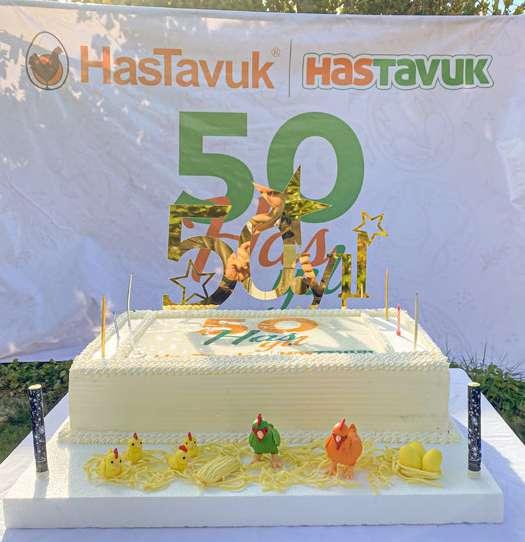

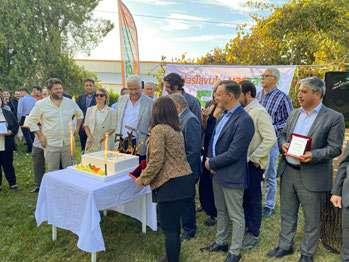
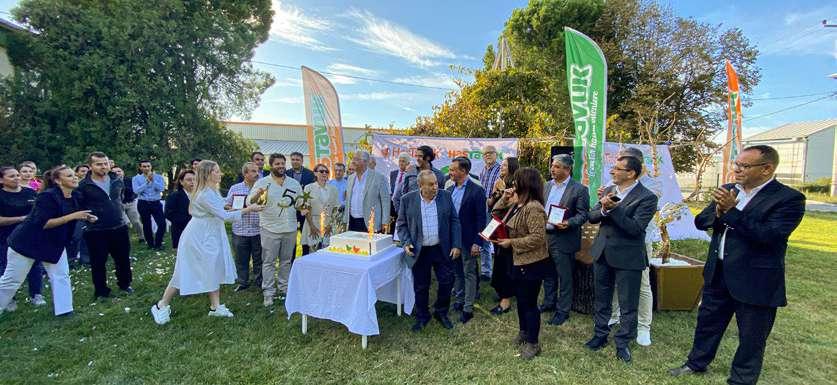
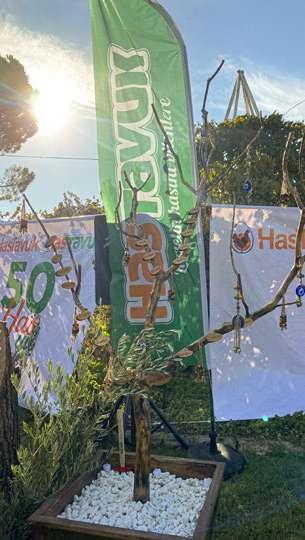 CUSTOMER NEWS |
CUSTOMER NEWS |
EW GROUP
Breeding & Biotechnology
When it comes to animal welfare, Switzerland is considered a pioneer. In the area of parent stock management and chick production, this is especially true for Animalco AG in Switzerland.
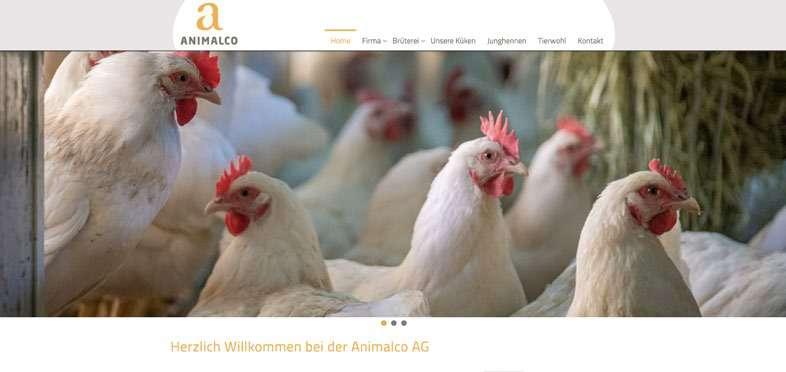
Magnus Döbeli has been running this business for more than two decades, focusing on education and innovation with an emphasis on animal welfare and sustainability.
Coming from a cattle farming background, Mr. Döbeli has continuously trained himself in poultry management at the Aviforum.

In addition to the families’s own pullet rearing, which is managed by his wife, their son Andreas has also joined Animalco in the meantime.
Supported by the board of directors and the shareholders, Animalco AG invested almost 15 years ago in the first organic hatchery with attached parent stock facilities with a winter garden and free-range area.
In order to ensure capacity utilization and an economic operation, organic broilers and organic layer chicks were hatched there from the very beginning. The hatchery quickly became too small and a new building was taken into operation in 2019.
Today, almost 2 million chicks hatch there every year. Predominantly slow-growing broilers and about 50 % of all organic layers in Switzerland.
In the meantime, the competitor has also put an organic hatchery into operation.
In food shops in Switzerland, you can only find eggs from organic or free-range production. Eggs from Swiss floor management have disappeared from the shelves. During the Corona pandemic, the demand for Swiss eggs increased enormously.
Currently, the market is oversupplied with eggs, as many consumers are once again buying from neighboring countries.
The broad-based marketing campaign: “Das Ei kanns” (The egg can do it) aims to get the demand for Swiss eggs back up to a higher level.
“Das
The phasing out of chick-killing is also a big issue in Switzerland. For almost 10 years, on the initiative of Mr. Döbeli, Animalco has been keeping dual-purpose parents from the breed LOHMANN DUAL.
Together with the food retailer Coop, the LOHMANN DUAL males are fattened and marketed in the organic sector. The females are used to produce table eggs.
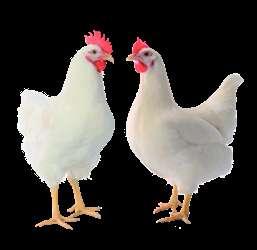
As it was difficult to sex the offspring of the early generations of parents accordingly, Animalco has been pushing LOHMANN BREEDERS and is testing now a new form of dual-purpose birds that can be sexed on the basis of feathering speed on the first day of life.
Furthermore, the LOHMANN SANDY is used as a dual purpose layer in the organic sector similar to the concept of the egg producers from Austria. Comparable to Austria, all males are raised and the hens are used as laying hens on organic farms because of their particularly good livability.
As the Swiss organic sector has decided to completely phase out chick-killing by 2026 and sexing in the incubation process is also not to be an option, all males must be reared and their meat used for human consumption.
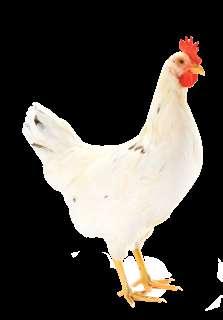
Animalco is currently planning the next level of modernization under the direction of Mr. Döbeli. Since the currently existing hatchery does not allow for any further structural adaptation and sex determination procedures will have to be used in the medium term, a hatchery specialized in laying hens with the option of sex determination has to be built in the immediate vicinity of the organic hatchery.
The effectiveness and costs of different methods are currently being examined. The goal should be to determine the sexes as early and safely as possible, which can be used automatically and autonomously in Switzerland.
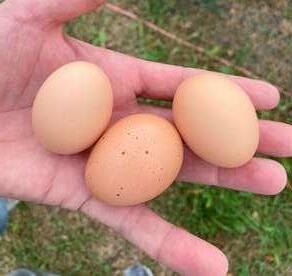
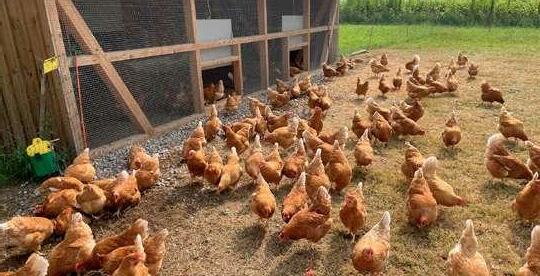
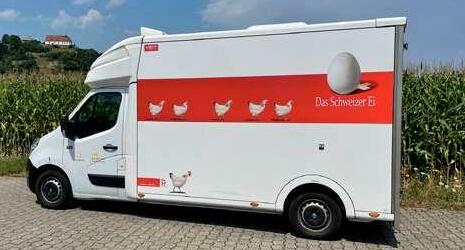
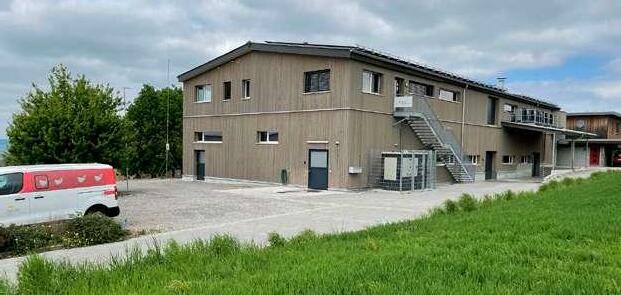
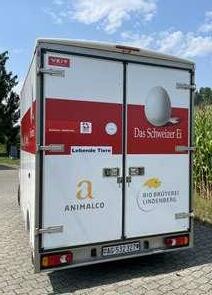
We would like to thank Mr. Döbeli for the excellent cooperation over two decades and wish him much success and luck in mastering the next challenges.
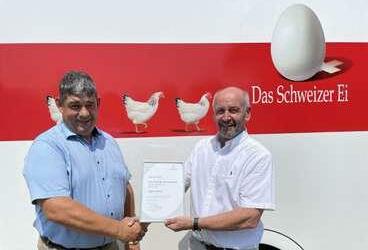
The growing market of Brazil has been one of the most important areas for LOHMANN, where we have 2 distributors sharing both brown and white birds throughout the country

LOHMANN BREEDERS made a round of visits with our Geneticist Dr. Matthias Schmutz in December 2021 and then another one with the main nutritionists of the country and our Global Nutritionist Juan Valle Diez in January 2022.
In December 2021, Dr. Matthias Schmutz met customers from the northeast of the country in order to get some feed-back of the performance of our breeds in such a hot climate. In the southeast he met several customers, ending up in Bastos city, one of the most chicken populated regions in Latin America.

In the whole country we can find all kinds of management and housing systems from conventional old-fashion open houses to fully closed and ventilated houses and alternative systems which give us a rich contribution on our genetic and nutrition performance.
We have shared our new standard figures, expanding production to 100 weeks in a single cycle with increased egg production per hen housed in all breeds.

In January 2022, Thomas Calil and Juan Valle had a meeting with our distributors Planalto Postura and LOHMANN do Brazil.
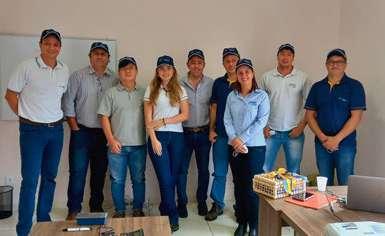
They discussed new advances of LOHMANN worldwide such as increase of production capacity and how the company is structured to serve the growing demand of our genetics globally.
They discussed
of LOHMANN worldwide such as increase of production capacity and how the company is structured to serve the growing demand of our genetics globally.
Then, Juan Valle shared concepts for layer nutrition and showed updates on energy/protein levels going in depth on amino acids composition of feed and their ratios, among other relevant topics such as calcium and phosphorus management.


That was such an enriching meeting as we could count with more than 30 professionals, representing more than 10 important nutrition companies in the country.
The days after we went to both offices of our distributors in Bastos where we met important customers and other nutritionists.
Finally, we wrapped up the week of visits with internal discussions on our own parents to achieve the best results in production so their offspring we send to the customers can be assured to be in the best conditions.
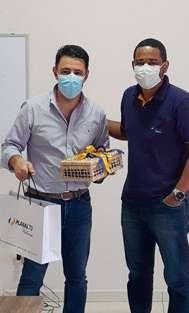
We would like to thank our colleagues in Brazil from Planalto Postura and LOHMANN do Brasil, our customers and business partners for the warm welcome and the high level of discussion we had.
new advances
For every management the right hen, for every market the right egg and from now on for every taste the right recipe!
World Egg Day is celebrated across the globe on the second Friday of October every year.
The global event welcomes everyone to honour the unique contribution eggs make to supporting people around the world.
There are lots of ways to celebrate the World Egg Day on 14 October 2022. We at LOHMANN have decided to publish an exclusive cookbook including the favourite recipes from our Technical Service, Sales and Marketing Team! It couldn’t be more international!
You will find everything here, from savoury to sweet, cold or warm, meat or vegetables. But there is one thing you will not find: a recipe without LOHMANN eggs!
The first editions of our cookbook were given to the participants of our LOHMANN SCHOOL CAGE FREE, who were our guests on 14.10.2022.
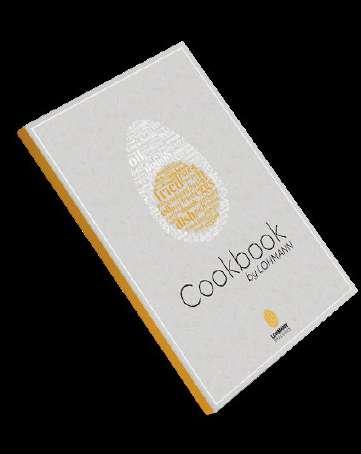
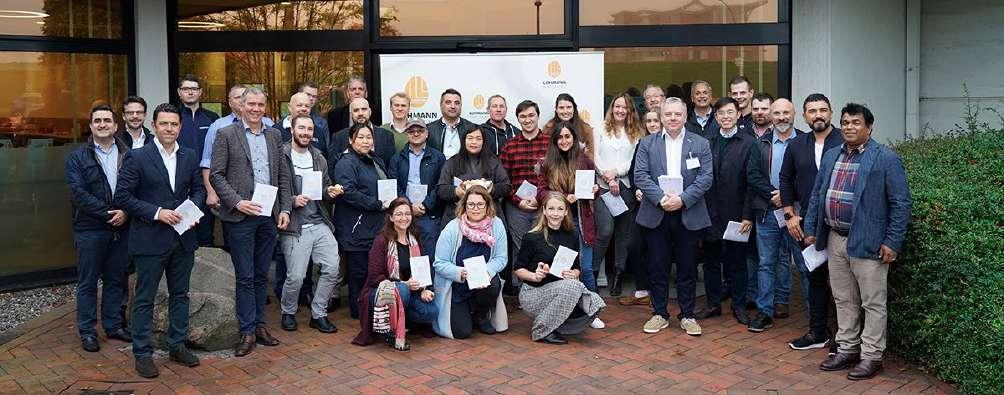
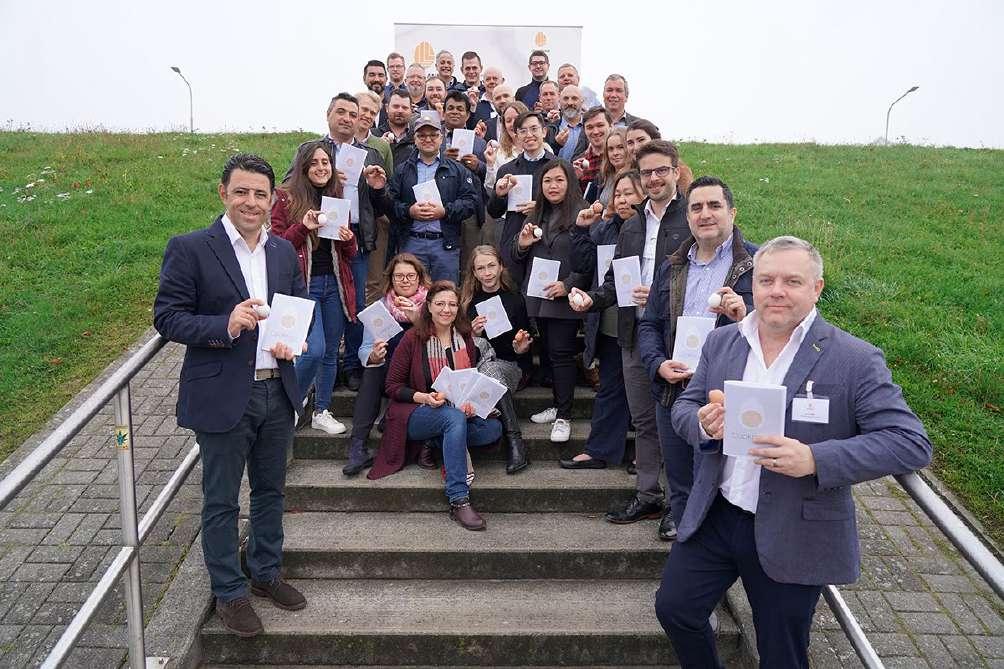
Once
Once
















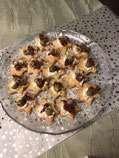
Until now our Management Recommendations for Barn, Aviary & Free-Range Systems were only available as an E-guide. The advantage for you: all important aspects are supported with videos and additional information.

From now on, our guides are also available as print versions. Of course, we have small quantities on stock for you. For larger quantities, we will be happy to provide you with the corresponding print file.
But LOHMANN would not be LOHMANN if the print version did not hide something more. The print version can compete with our E-guide regarding additional information. It is peppered with QR codes so that you can easily call up additional, detailed information on the topics of interest to you on your smartphone or tablet! Or do you only need the performance data and body weight tables of a specific breed? Then we have a little extra for you: for each of our lines, we have summarized this data in a printable guide.
Our new production charts are now available to you – for every line, for every management.
Your practical benefit: the production charts are ready to download and print! Enter your data and compare them with our standards –everything at a glance!
Our production charts are available in English, German, Spanish and French!

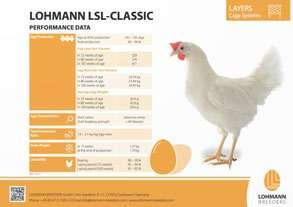
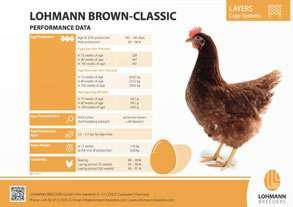
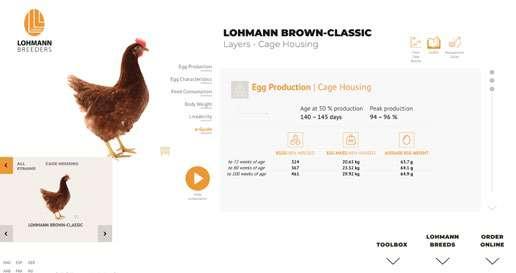
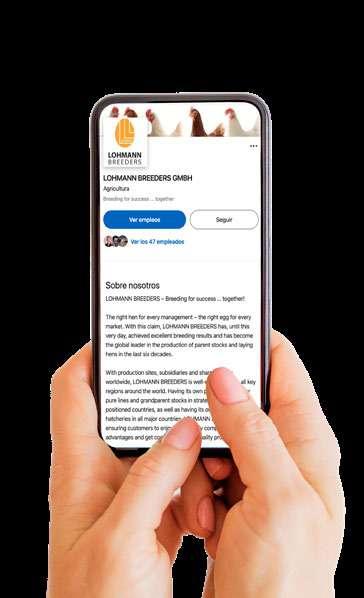

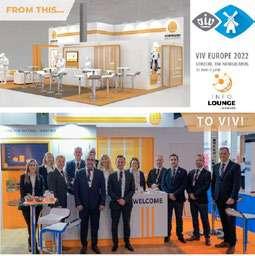
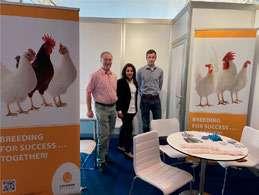
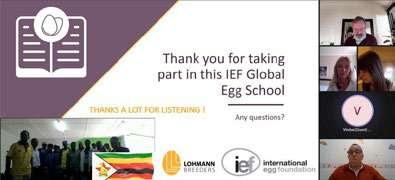
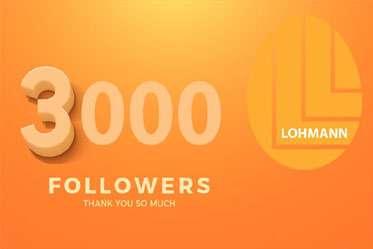
In-house activities – a visit to us in Cuxhaven is always worth it!
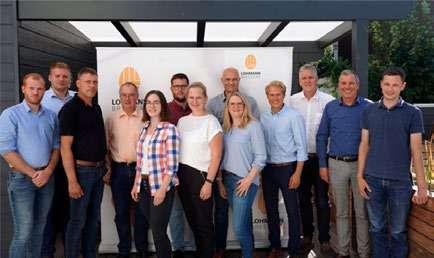
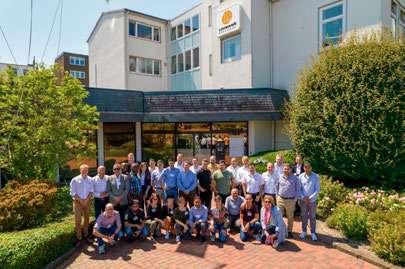
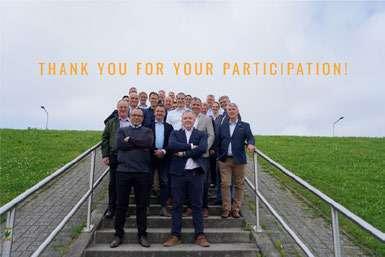
VISIT US ON LINKEDIN and be always up to date! It’s worth it!

Advertisements – exclusively on LinkedIN
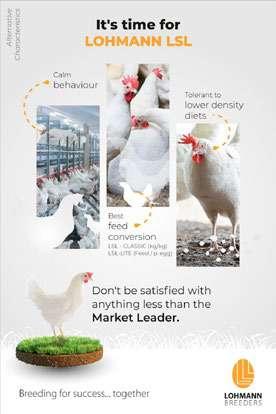
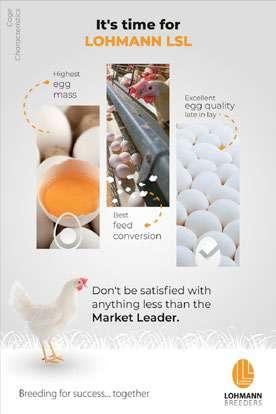
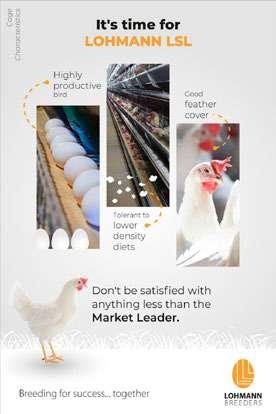

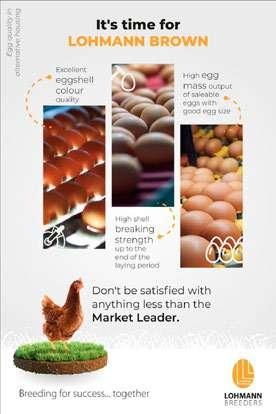
VISIT US ON LINKEDIN and be always up to date! It’s worth it!
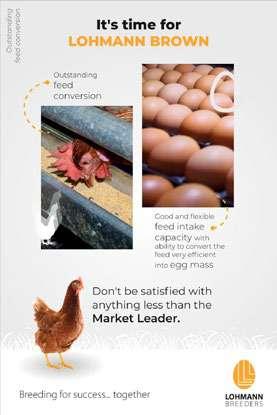
And of course, don’t miss any marketing news!

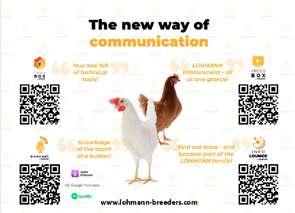
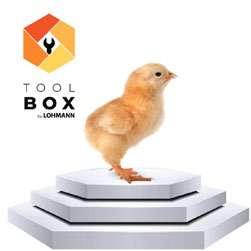
VISIT US ON LINKEDIN and be always up to date! It’s worth it!

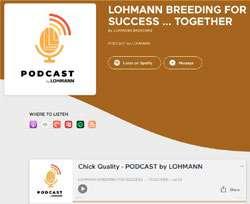
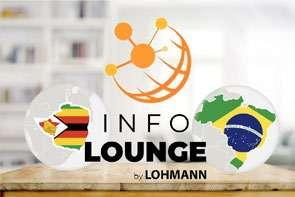
No ordinary box, but a box full of practical and relevant management tips for the modern layer market, regularly filled by our LOHMANN team of experts on the topics of management, nutrition, veterinary and incubation


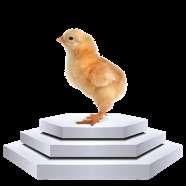

Your box full of technical tools! SAM.
Strategic Active Management
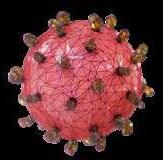

This is our LOHMANN social media platform. Find out all the news in and around our big LOHMANN family.
LOHMANN News: What’s new at LOHMANN? You can find out here!
Customer News: YOU take centre stage! Do you have something interesting to report? Contact us! We are happy to publish anything worth knowing from and about our customers!
LOHMANN Worldwide: Find out everything about our activities worldwide, where we are, when, why and how!




LOHMNN Events: If you are looking for more information about our events, you have found the right place. Perhaps you would like to join us next time?
LOHMANN’s Egg World: Everything about eggs - cooking, tips and tricks and much more. Just have a look and collect ideas.

So much text and no time to read? Then we have two alternatives for you. If you like good films, then take a look at our VIDEO BOX. Technology, events, history, there is something for every interest.
Or are you a friend of podcasts? Knowledge at the touch of a button - that’s what our PODCAST by LOHMANN stands for.
Housing and brooding periods are one of the most critical phases in whole life of a laying hen. This stage along with proper rearing to achieve a top-quality pullet, are the main pillars of a successful laying period.
Nevertheless, in practice the importance and sufficient attention to details and the ins and outs of these periods are unfortunately often overlooked. Any failure or mistake may affect the whole life of a laying hen and are not reversible.
The day-old-chickens are very vigorous and strong new-born creatures. Hatching out of a strong eggshell, the whole hatchery procedures and transport to farm are real challenging incidents, they go through.
On the other hand, we must keep in mind that they are sensitive and vulnerable baby chicks, totally dependent on their environment conditions, provided by us.
Consequently, they must be handled gently and with care while all their needs are provided at the best.

Environmentally controlled vehicles must be used to transport the day-old-chickens from hatchery to the farm.
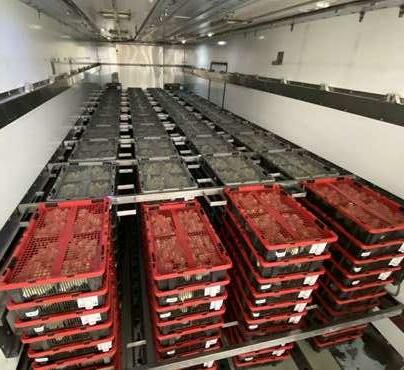
Proper temperature, humidity and ventilation should be ensured during the whole transport period.
All arrangement must be made in advance to ensure appropriate housing conditions and brooding set-up.
The focus should be to unload and place the chicks as quickly as possible. Highest levels of biosecurity measures must be safeguarded before chick arrival.

As a matter of fact, the chicks are not able to regulate their body temperature during first days of life. Therefore, incorrect ambient temperature has a direct negative impact on their body temperature.
At placement and during brooding period, optimal chick body temperature can just be provided through correct environmental conditions including correct ambient temperature and relative humidity besides minimum ventilation to supply fresh air and oxygen demand.
Veritably, under low body temperatures, chicks are not able to adjust their metabolism. The negative consequences are devasting such as risk of yolk sack infection, malfunction of immune system, susceptibility to bacterial infections, insufficient body weight gain and high mortality rates.
The best indicator to judge the proper ambient temperature and conditions, are the chick behaviour and their body temperature measured by professional baby thermometers.
TECHNICAL | Housing & Brooding — FoundationEarly and easy access to fresh, clean water and good-quality feed is essential for development of gastrointestinal tract, immune system and helps residual yolk to be absorbed more quickly.
The proper feed type and structure, correct water temperature and adjusted drinkers’ height are crucial. Checking the crops some hours after housing and during first days is the best way to examine feed intake by chicks.
High light intensity out of proper light sources without any shadow points must be provided at housing and during the first days. Finding water and feed and get settled in their new environment must be secured for day-old-chicks.
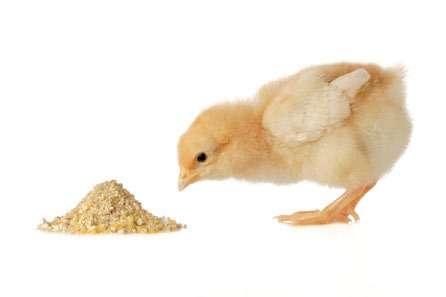
The intermittent lighting program is an easy tool to stimulate weaker hatchlings by stronger ones and ensure their resting and activity time.
This tool can be applied during first week and up to 10 days which verifiably causes more uniform behaviour and better bodyweight gain of the flock and will reduce the first week mortality.
Chicks’ behaviour is one of the best indicators of their well-being and right housing conditions explicitly temperature.
Too high tempratures: Chicks go away from heat source. They droop the wings and start to pant and are less noisy.
Too low temperatures: Chicks crowding and piling together near heat source. Their sound signifies distress call and rigid posture can be observed.
Draught or uneven light distribution: Chicks gather in specific corners, uneven temperature or darker spots, high ventilation rates and draught could be some of the reasons.
Correct temprature: Chicks are evenly spread moving, drinking and eating. Very normal sound without distress call will be precieved.
The best indicator to judge the correct house temperature besides the chick’s behaviour, is to measure their body temperature, the optimum is between 40-41°C (104-106°F).

The proper drinker’s height and correct water temperature are very often uncared during housing and brooding period. The right drinking angle for chicks is between 35-45° and the appropriate drinking water temperature is between 20-25°C (68-77°F).
45º 35º
TECHNICALRegular Crop Checks some hours after housing, help advise you on feed uptake and is one of the best indicators for correct housing conditions.
An extra care and close attention must be paid to day-old-chickens during first days of their lives. Housing must be realized as quickly as possible but handled with especial care the whole time. In particular, correct ambient temperature and relative humidity are one of the most crucial parameters specially during first 5 days, as long as the chicks are unable to regulate their own body temperature.
Unquestionably, proper housing and brooding besides optimum rearing management to achieving top pullet quality, are the foundation stones for decent start of production period and the key for a successful laying cycle.
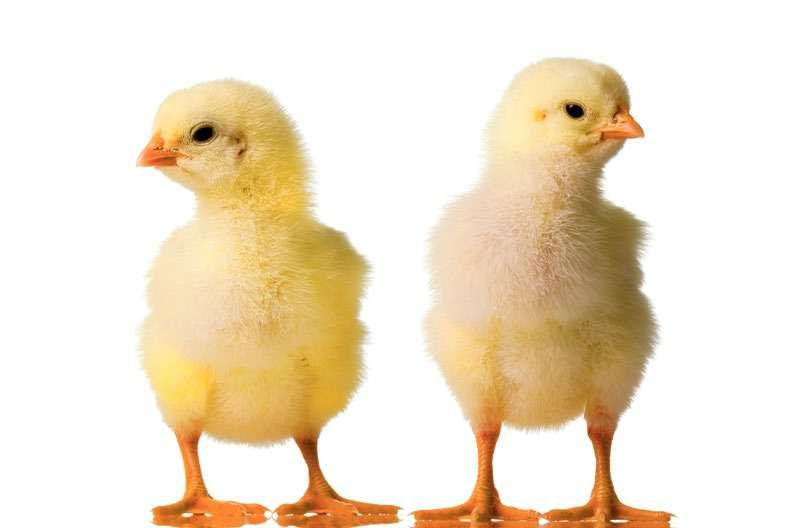
LOHMANN BREEDERS GmbH
Am Seedeich 9–11
27472 Cuxhaven, Germany
Phone: + 49 (0) 47 21 505-0 Fax: + 49 (0) 47 21 505-222 www.lohmann-breeders.com E-mail: info@lohmann-breeders.com